






Established in 1969, the Texas Rural Water Association (TRWA) is a statewide nonprofit trade association with an active membership consisting of nearly 900 nonprofit water supply corporations, water districts, small-town water departments and investor-owned utilities. In addition, more than 150 water industry suppliers participate in TRWA activities as associate members. TRWA members provide water and wastewater service to 3 million customers throughout Texas.
TRWA is dedicated to helping directors, managers, operators and office professionals provide efficient service and clean, safe drinking water to their customers. Through on-site technical assistance, education and information exchange, TRWA helps its members better meet their needs as well as the needs of their customers.
Bruce Alexander Medina (District 2)
Vice-President Robert Nettles Walker (District 13)
Mark Gardenhire Shackelford (District 1) Treasurer Steve Adams Brown (District 4)
Dennis Donoho Denton (District 3)
Dave McMurry Bastrop (District 5)
Brian Macmanus Cameron (District 6)
Allen Knight North Collin (District 7)
Charles Beseda Hill (District 8)
Pat Allen Guadalupe (District 9)
Kent Watson Brazos (District 10)
Rachel Webb South Rains (District 11)
T. Chad Wilson Kaufman (District 12)
Matthew Barrett Swift (District 14)

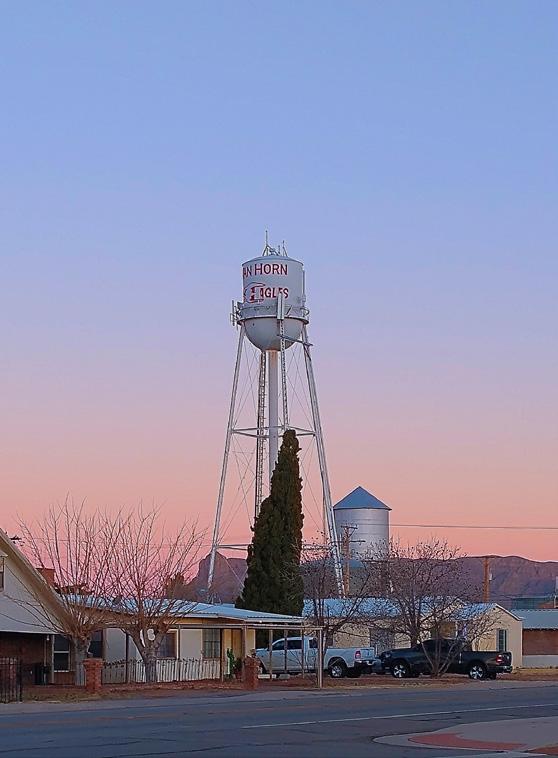


Once again, I want to thank everyone in our rural water community for what you do every day to provide a safe and reliable source of drinking water to rural Texas! On top of that, I want to thank everyone that had anything to do with RuralWaterCon 2023. Our attendance at both the annual convention and at the State Capitol on Rural Water Day surpassed expectations.
A special thank you goes out to National Rural Water Senior Vice President Phillip Combs. His opening presentation was exciting, exhilarating and a shining example of the relationship Texas has with the State of Tennessee and the National Rural Water Association. Phillip led the charge with TRWA Board Member Kent Watson as his team walked the halls of the State Capitol. Each TRWA Board member was joined with members from each district to visit most, if not all, State Senate and House offices to spread the message of rural water and seek support for legislation that benefits rural water in Texas. Thank you also to Michael Preston from the National Rural Water Association, who provided us a presentation on the legislative efforts of National Rural Water in Washington, D.C.
We appreciate all of our great sponsors for not only the conference itself but also the Awards of Excellence and
our Texas Rural Water Foundation (TRWF) Student Scholarships. With their help and the donations of many of our members and member systems, we were able to recognize outstanding achievements of our individuals and systems. (See page 15 for a list of winners.) The TRWF awarded 18 student scholarships with a combined total of $27,500!
Congratulations and welcome to our new TRWA Board Members and Alternate Directors. Dennis Donoho takes over as District 3 director from Past President Chris Boyd, who retired from the Board after 12 years of dedicated service. T. Chad Wilson replaced Paula Weber as the District 12 Director and Lauren Evans replaced Danny Smith as the Alternate Director for District 2.
As Lara and her team continue to work through the legislative session, we welcome and encourage your comments and involvement in helping to pass legislation helpful to our membership while working to defeat legislation deemed to be harmful to our membership. Thank you to all who have taken the time to provide testimony or respond to calls for action in support of legislation on behalf of TRWA.
Be safe,
Bruce Alexander President TRWA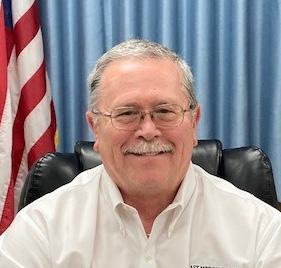

As Bruce Alexander mentioned, we had a very successful Annual Convention and Rural Water Day at the Capitol, with attendance returning back to prepandemic numbers! It was great to see so many of you there and networking with each other. We’re looking forward to seeing you again this summer at our Training & Technical Conference in Galveston! Registration is now open.
We’re still in the thick of the Texas Legislative Session, working hard to secure favorable financing at the Texas Water Development Board to help rural systems replace aging infrastructure. We are also supporting a number of initiatives that would benefit rural water systems, while fighting bills that would hurt our industry. Please read our weekly legislative e-Newsletter, the Capitol Pipeline, for the latest updates.
We have new faces and new energy at TRWA this spring! As Bruce wrote and as featured in this issue of Quench, we have two new board members and a
new alternate director. For those interested in getting more involved, there are several TRWA districts that still need an alternate director.
We have also welcomed four new staff members who we introduce in this issue and are saying goodbye to a long-time staff member who has decided to retire –Deborah McMullan.
We are gearing up to welcome and train our next group of future leaders through our Emerging Leaders Program that launches this June. We are excited to have received 19 applicants to the program this year! We’re also excited to launch our third cohort of Apprentices this July! The goal of our Apprenticeship Program is to attract new operator talent to the water and wastewater industry. We hope you'll take advantage of it.
We continue to strive to bring fresh programming and services to strengthen our members as we promote, support, represent and serve this essential industry. We welcome your ideas and feedback!
My best,
Lara Zent Executive Director & General Counsel TRWA
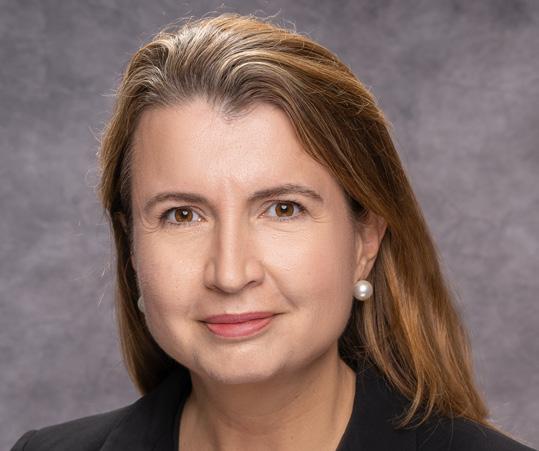
The 2023 TRWA Sample Tariff is now available on the TRWA website. While this was previously an item that was purchasable in our online store, going forward we're making it free for TRWA members, meaning you must be a current member and logged in to the TRWA website to access it. Visit trwa.org/sample-tariff-members to download the sample tariff.
Q:We are a WSC and usually have five Board members. Our Vice President just submitted his resignation letter. Can we still hold our monthly Board of Director's meeting for this month without that fifth member?
A: Yes, you can have the Board meeting. For WSC(s) section 22.213 of the Texas Organization Code requires a “simple” quorum, or simple majority, to conduct a board meeting. A simple quorum means that there must be at least 51%, or more, of the board members present to legally conduct business. That means 3 of your remaining 4 board members must be present to hold the meeting.
Pursuant to Section 49.053 of the Texas Water Code, Districts also require a majority of the board members to be present to have a quorum for a meeting. Therefore, if you were a district, the answer would be the same. Three of your remaining four board members would have to be present to hold the meeting. Please be aware that special water authorities have different requirements.
Q:What determines the point of service for a property located in 2 CCNs? Is it based on where the meter is set? Or where the final service point will be (house, etc)? We have someone requesting service where their driveway begins in our CCN but the bulk of their property and their house is in another CCN. Are we permitted to service them?
A: The point of service that determines whether a property is in a CCN is the actual place receiving utility service, which would be the house.
So, if the house is not in your CCN, and is in another utility’s CCN, then you do not have the right to serve them unless you enter into an agreement with the other CCN holder that is approved by the PUCT or if the property is decertified.
Q:An individual bought a house in our district at a foreclosure sale as an investment property. The former owner refuses to move out of the house and still pays his water bill. The new owner can’t get this guy to leave. He came in today and asked us to turn off the water service to his house to get the former owner to move out.
A: It depends on whether you are a WSC or a district/ political subdivision. If you are a WSC, and your tariff
requires property ownership as a condition of membership, as most WSC(s) do, and the new owner has transferred the membership in accordance with your policies, you can turn off the water at the property owner’s request. If a WSC requires ownership as a condition of membership, then the WSC has a customer relationship with the owner of the property, not the person who resides at the property.
However, a district or a city could not turn off the water. A district or city enters into the service agreement directly with the resident, so its customer relationship is with the resident, not the property owner.

It could very well be that some positions are “safety sensitive,” such as operating vehicles or heavy equipment or working with chemicals to treat water. In these cases, random testing is permissible. But for any other position, it is safer to only drug test if there is reasonable suspicion.
For private sector employers such as water supply corporations, random drug testing is permissible. Note, however, that if covered by the ADA, random alcohol testing can be an unlawful medical inquiry. It is safest to assume that a WSC would be treated as a governmental entity in this situation.
Q:Can I make my employees take random surprise drug tests?
It depends. If your system is governmental, random (that is, suspicion-less) drug testing is unconstitutional unless the position is “safety sensitive.”
TRWA Members can submit their legal inquiries by emailing legal@trwa.org or by using the form on the bottom of the Legal page. They can also search the archive at https://www.trwa.org/page/ KILHome.
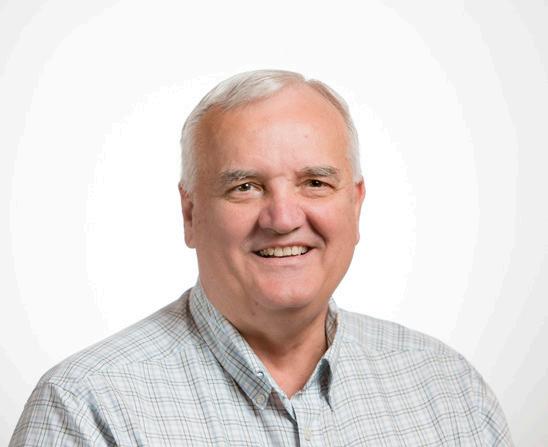
Q:Our long-time district engineer recently called asking for input on possible relocation of an existing 300,000 gallon water storage tank that's no longer needed. Is there a way for this tank to be reused by a rural system? It seems like it could be a win-win for both parties, removing the tank and saving somebody on their costs rather than paying to demolish and scrap it.
A: I’ve heard of systems needing to get rid of a water tank, but usually it was a standpipe or ground storage tank that was 15 feet in diameter or less. In terms of relocating them, the standpipes were more often 12 feet in diameter. To move something much larger than that likely would require special permits and utility support companies to be engaged for the duration of the trip, helping to raise electrical and other overhead lines, which can be costly if it’s even possible.
The alternative is also expensive: finding a tank company or welding company willing to keep the costs reasonable for first taking down then re-erecting the tank at the other system’s location. Many times, the cost to cut a larger tank into pieces, transport the components to a new location, re-assemble them and then get the tank to pass all the sanitary tests and regulatory inspections will be close to if not more than the cost of a new tank. That’s without taking into account the condition of the tank.
Tanks have been relocated in the past when all the conditions were favorable to the system needing that size tank.
But it’s often cheaper, and certainly less complicated, to simply erect a new tank.
Q:We have a situation where an owner sold her property that has the meter on it to her neighbor, then ran a line from that old meter to another lot that she owned next to the property that was sold, which is causing trouble between the two neighbors. Can we pull the meter and leave the previous owner without service based on the request of the new owner of the property where the meter was installed?
A: The meter stays with the property where it was installed, so this previous owner will need to purchase a new meter and tap to be installed on their new property. One important question to consider is whether your system’s tariff requires the owner of the property to be the member of the WSC. The Texas Water Code allows WSCs to restrict membership to be in the name of the property owner, which means if this property with a meter on it was sold to a neighbor, then that previous customer’s membership could be cancelled and reissued to the new property owner.
The TRWA Sample Tariff, Service Application and Agreement form and the Primacy Agency rules all have language stating that the “meter must be located on the property Designated To Be Served.” These rules were adopted to keep exactly this sort of fight between neighbors to a minimum, and to prevent situations where full access to previous property improvements are not transferred with
the purchase of the property. The previous owner should have contacted the WSC to find out what the policies are before dividing and or selling that previous property with the existing meter still on that sold property.
Q:Does the person running for a position on the board of our WSC have to live on the property or just be the owner of the property?
A: Chapter 67 of the Texas Water Code states clearly that a candidate for a board of directors position of a WSC must be "a member or shareholder of the corporation."
The Water Code does not specify that the individual has to live on the property. If that person wanted to have a water meter installed and could meet the tariff requirements to be a member of the WSC, then they would be eligible to serve as a director even if that land only had a faucet to fill a water trough on it and that person never intended to build a house or barn on it.
The person running for the board cannot just be someone who owns land within the WSC's CCN. Some people attempt to apply district rules to WSC elections, but this works a little bit differently for SUDs, MUDs and other water districts, whose rules do allow for anyone who owns property within the district to serve on a board.
Q:We have a contractor who does work with our system who’s interested in serving on our board of directors. Is this permissible, or would it be a statute violation?
A: I’ve talked with several systems over the years who have had board members, their relatives or members of the system do contract work for them. Some of them have been successful with this type of arrangement. Others wound up having lots of problems. This kind of situation can get sticky real quick.
To the best of my knowledge, there are no statutes that prevent contract workers who do business with a WSC
from serving on their board. Provided they're 18 or older and a member of the WSC, then the Texas Water Code says a person is “not qualified to serve as a director” only in the event that they have been judged by a court as mentally incapacitated or if they’ve been convicted of a felony.
However, just because something is permissible does not mean it’s advisable. In 2020, TRWA’s Keep it Legal column addressed a similar question about an employee of a Water Supply Corporation serving on the board of directors, and many of the points made there would still apply, even if the person was just a contractor, since that person would still be receiving payment from the system that the board is responsible for overseeing.
“From a public perception, the dual roles may appear to be self-serving,” then-TRWA Assistant General Counsel Trent Hightower wrote. “If a person is serving these dual roles for a WSC, my recommendation is that at a minimum this person not engage in any board discussion or decision involving an issue that would directly affect them in their role as an employee.
"If you decide to go forward with this course of action, you would need to proceed with caution and in consultation with the conflict of interest provisions in the Non-Profit Corporation Act every time the board considers a matter involving the financial relationship between that director and the corporation.”
Although the law allows this to occur, as you can see above it is not recommended due to the potential for the public or other board members to raise conflict of interest questions on every topic where the contractor’s work might be affected.
Larry Bell is TRWA's Technical Assistance Director, with more than 30 years experience at the association.
If you have a Technical Question, please email larry.bell@trwa.org or search the archive at https://trwa.org/qualityontap/

District 1 - Mark Gardenhire, Fort Griffin SUD
District 2 - Bruce Alexander, East Medina County SUD
District 3 - Dennis Donoho, MEN WSC
District 4 - Steve Adams, Brookesmith SUD
District 5 - Dave McMurry, Aqua WSC
District 6 - Brian Macmanus, East Rio Hondo WSC
District 7 - Allen Knight, North Collin SUD
District 8 - Charles Beseda, Birome WSC
District 9 - Pat Allen, Green Valley SUD
District 10 - Kent Watson, Wickson Creek SUD
District 11 - Rachel Webb, South Rains SUD
District 12 - T. Chad Wilson, College Mound SUD
District 13 - Robert Nettles, Riverside SUD
District 14 - Matthew Barrett, Swift WSC
President - Bruce Alexander, East Medina SUD
Vice President - Robert Nettles, Riverside SUD
Secretary - Mark Gardenhire, Fort Griffin SUD
Treasurer - Steve Adams, Brooksmith SUD
Immediate Past President - Vacant
District 1 - Steve Clemmer, Hamby WSC
District 2 - Lauren Evans, East Medina County SUD
District 5 - Roby Jekel, Beth Milam Falls WSC
District 6 - Steve Sanchez, North Alamo WSC
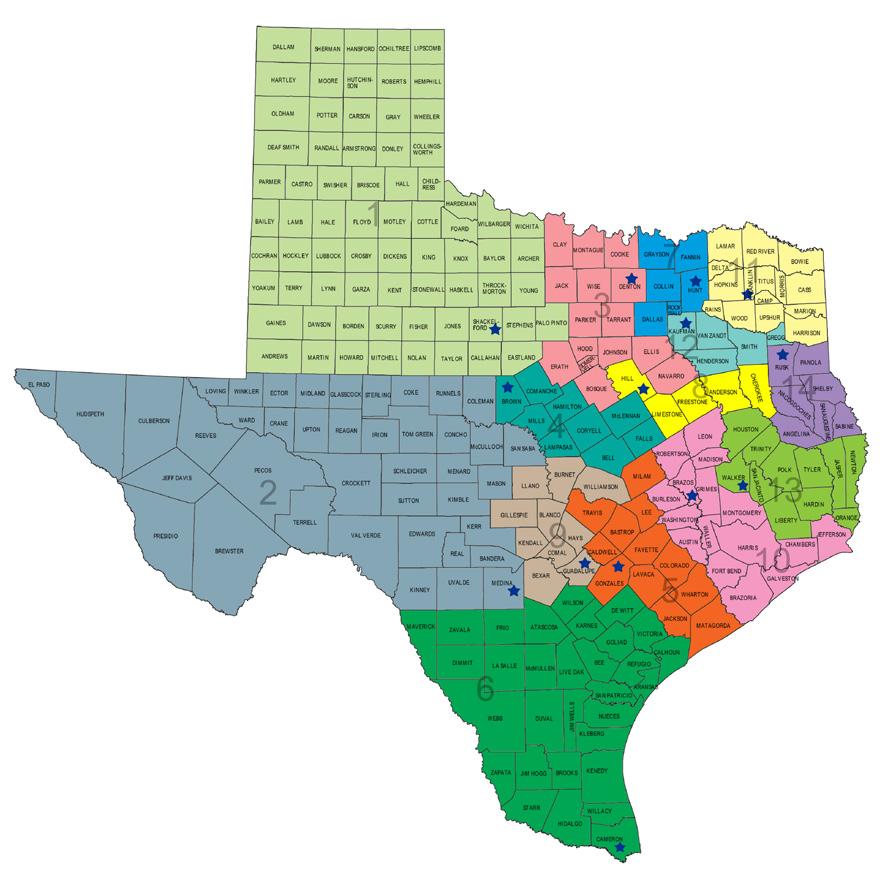
District 7 - Ross Brookbank, Copeville SUD
District 9 - Adam Telfer, Canyon Regional Water Authority
District 10 - Kyle Eppler, Wickson Creek SUD
District 11 - Kevin Spence, Cypress Springs SUD
District 13 - Amber Stelly, The Consolidated WSC

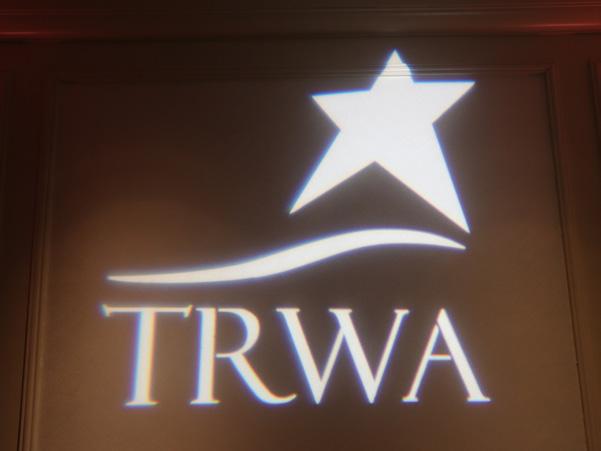


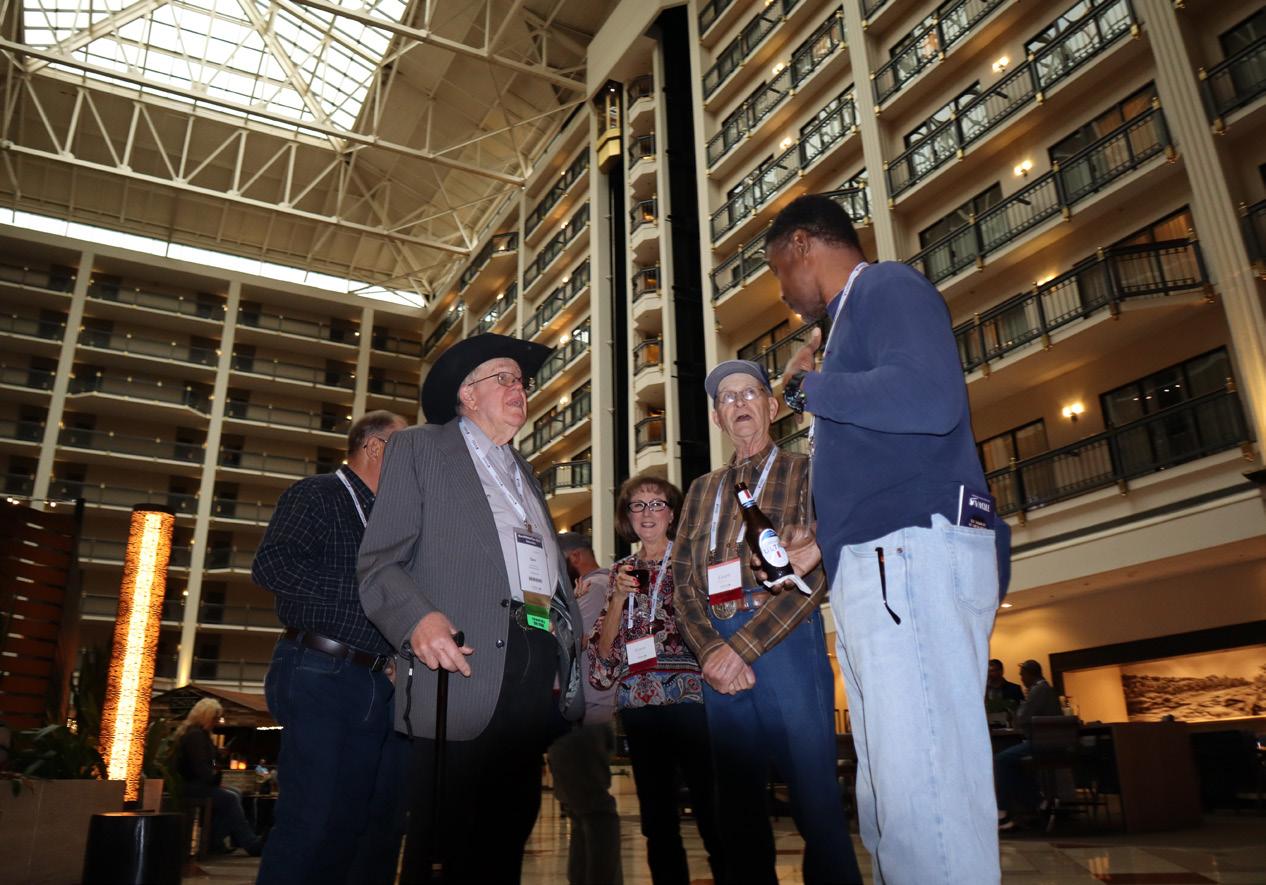
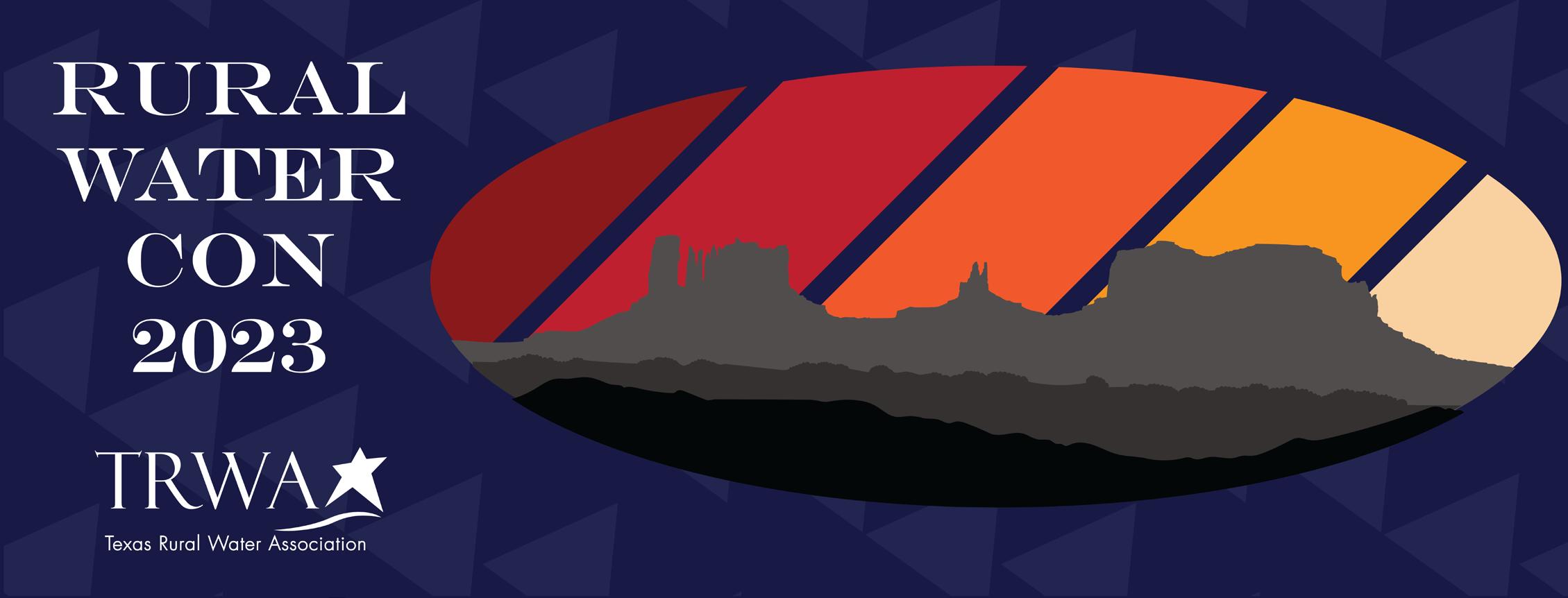




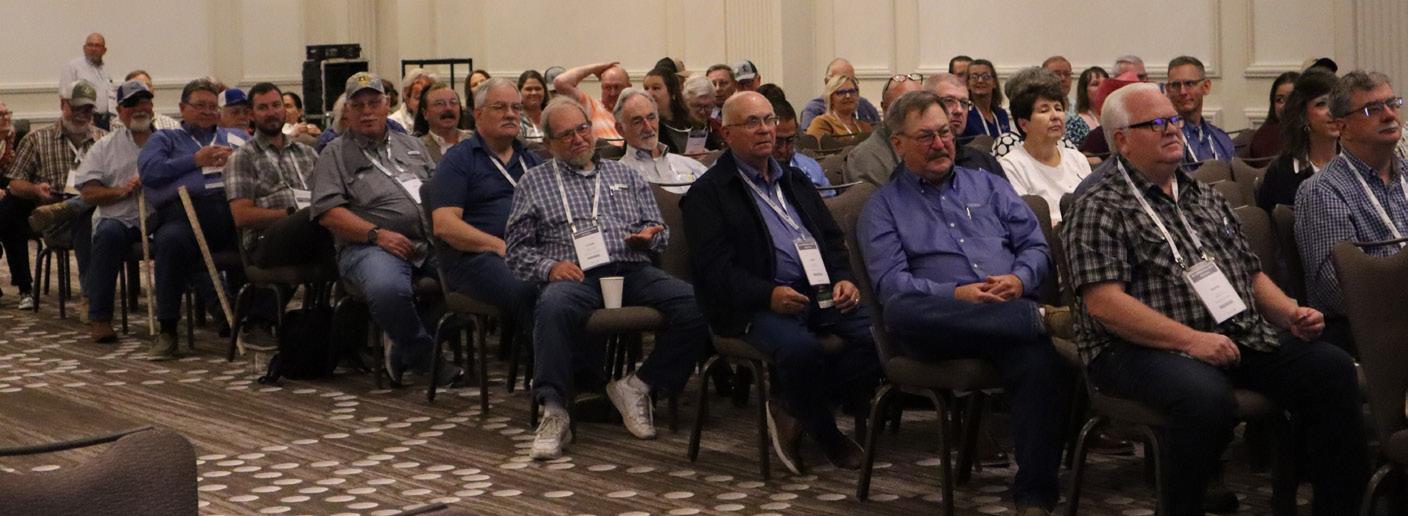
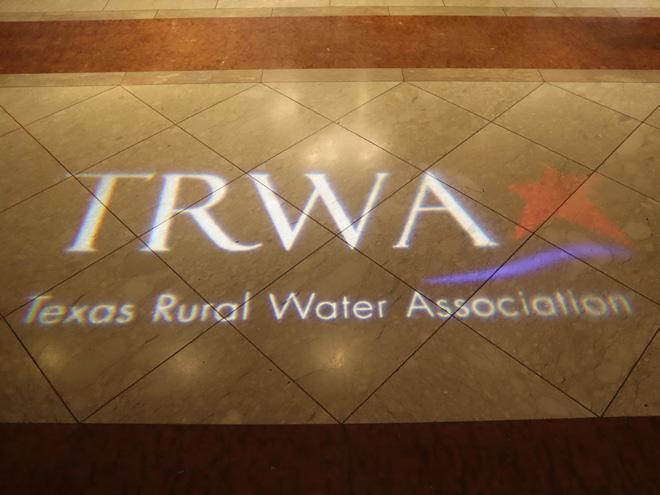
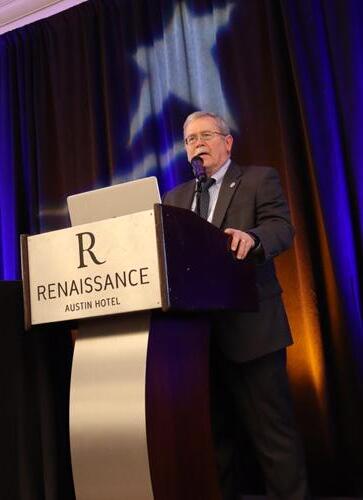
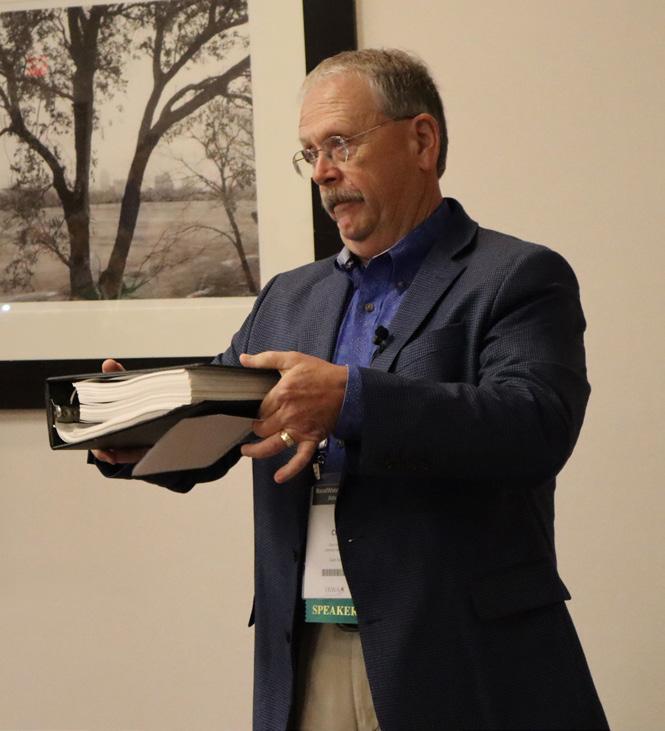

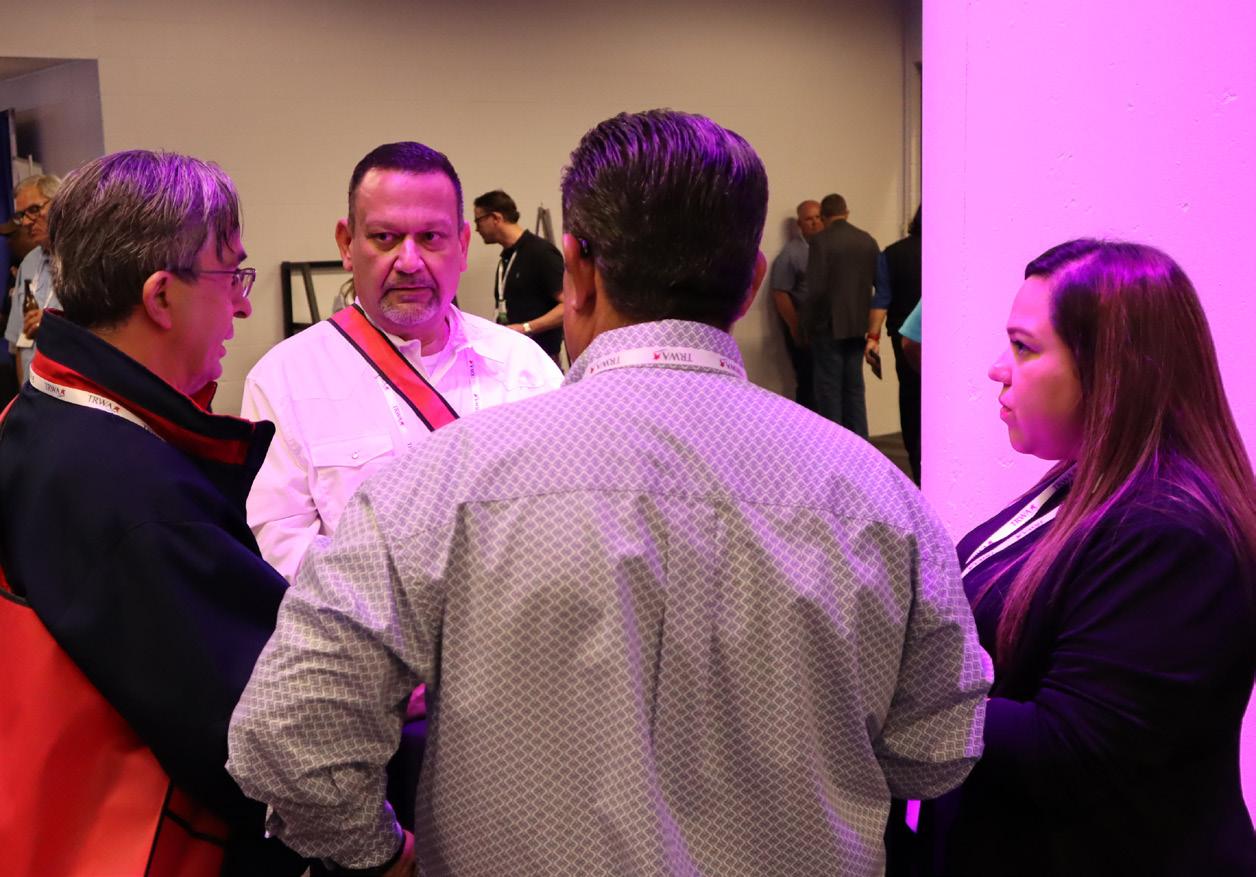
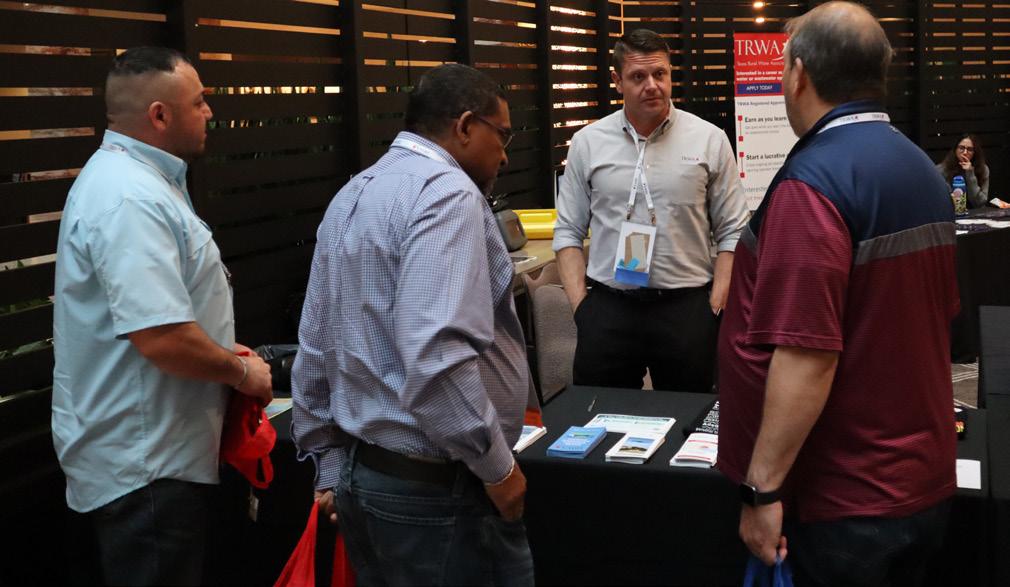

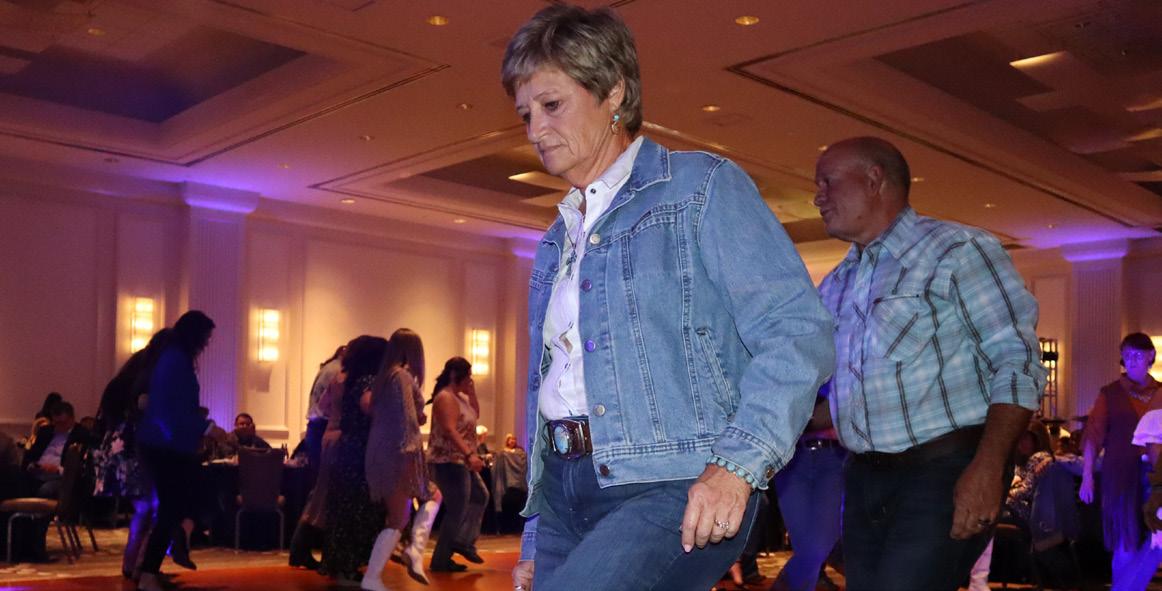

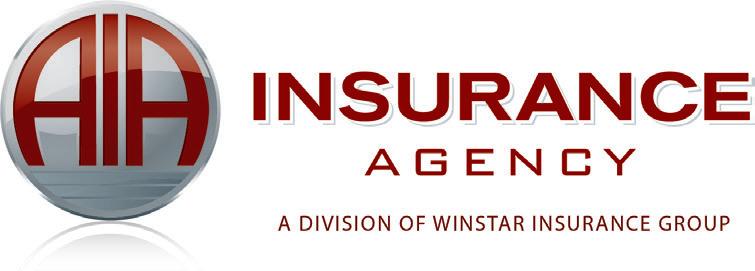
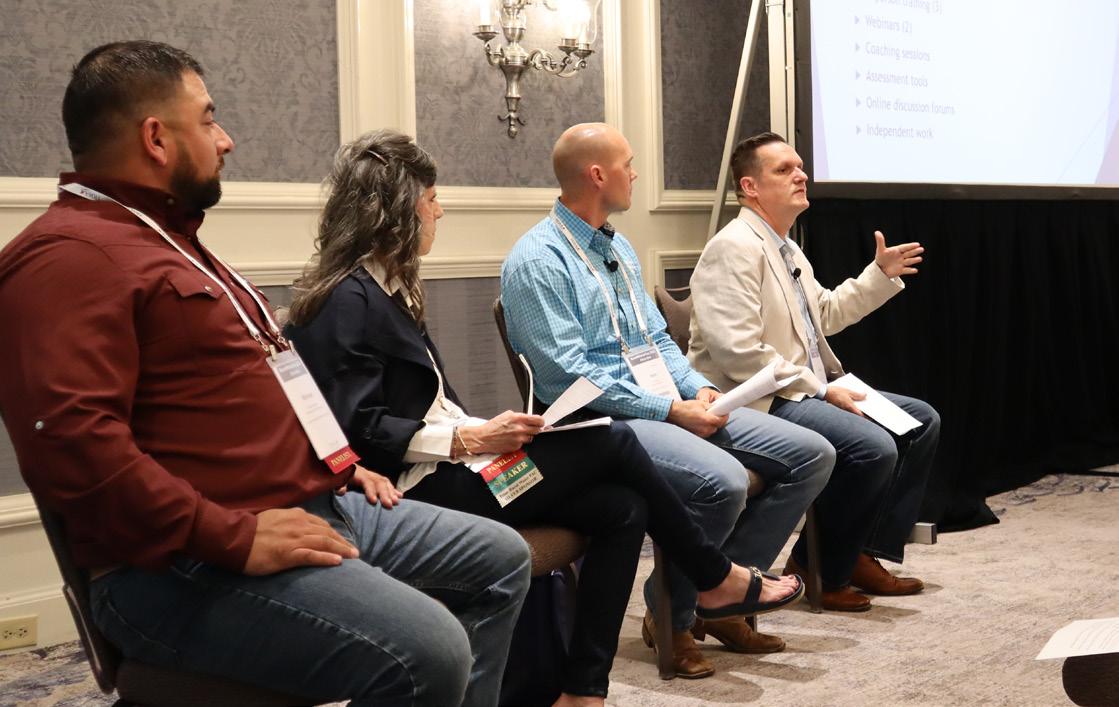
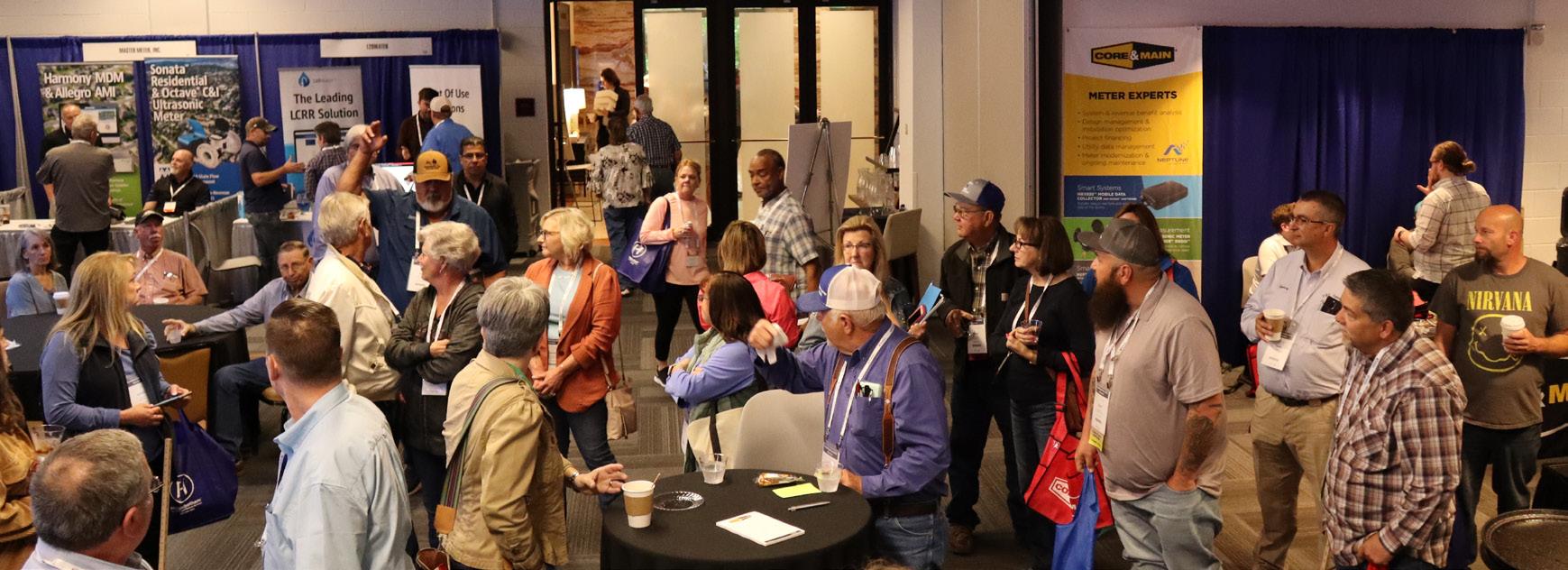
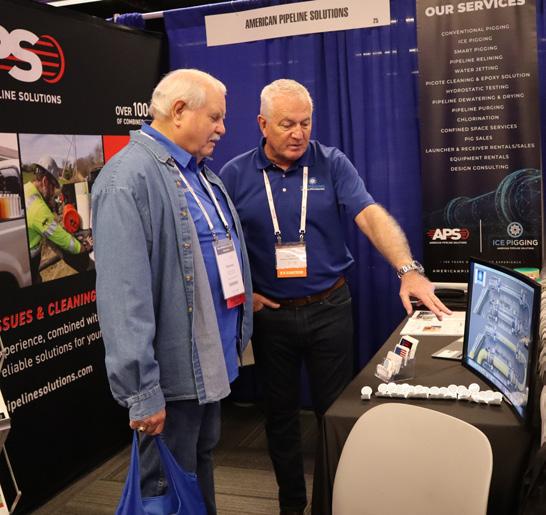



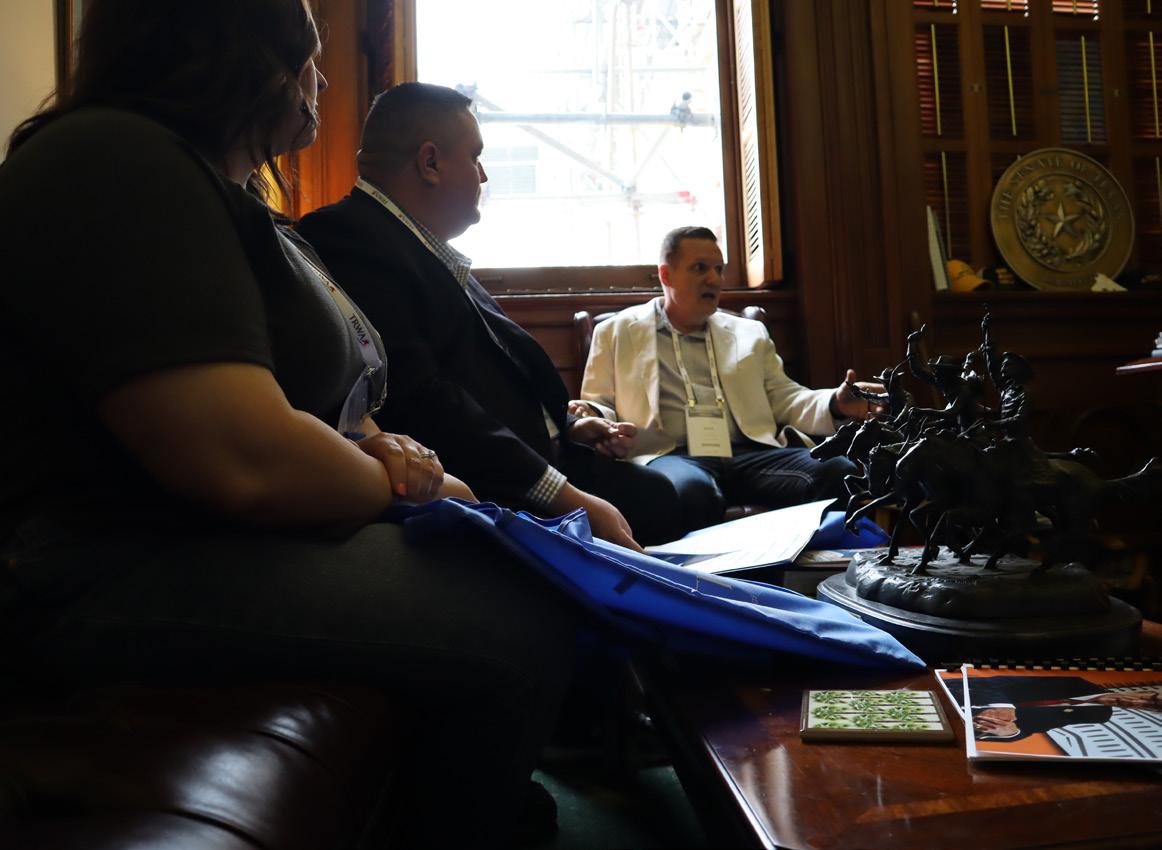

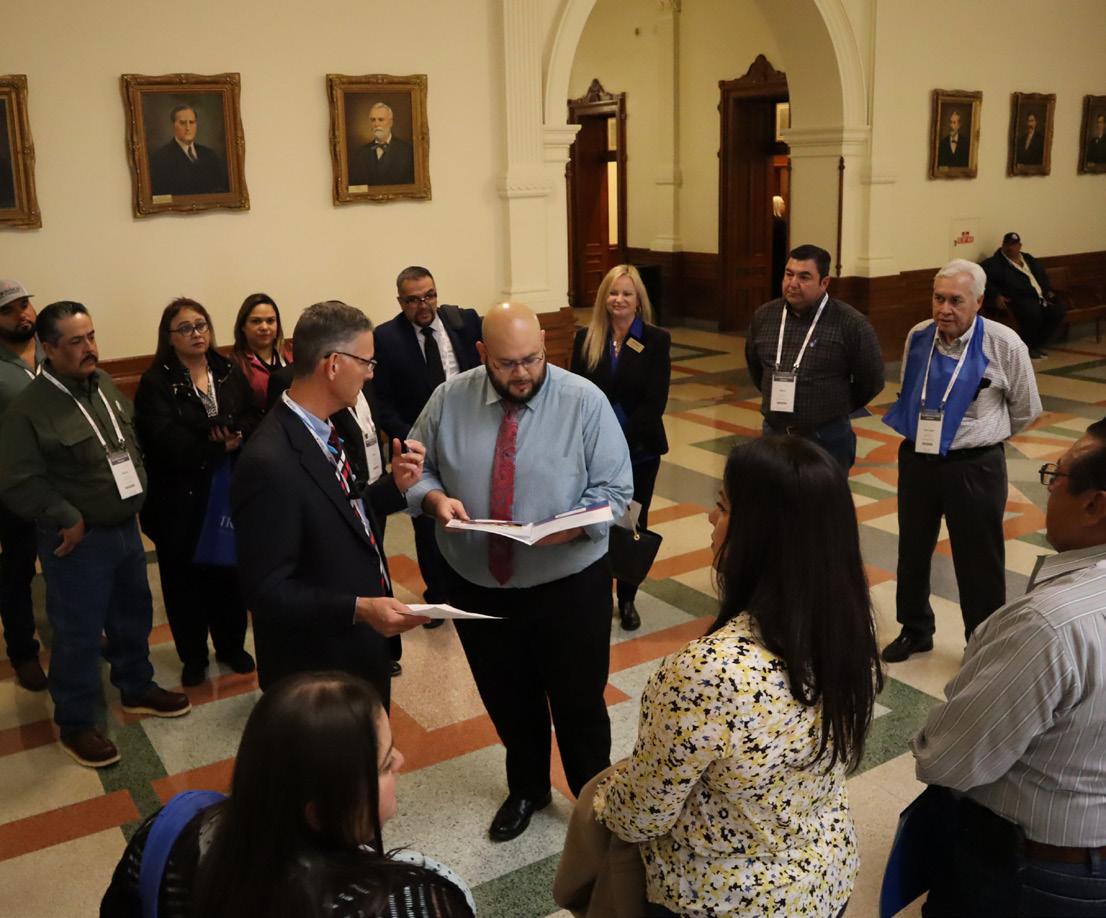

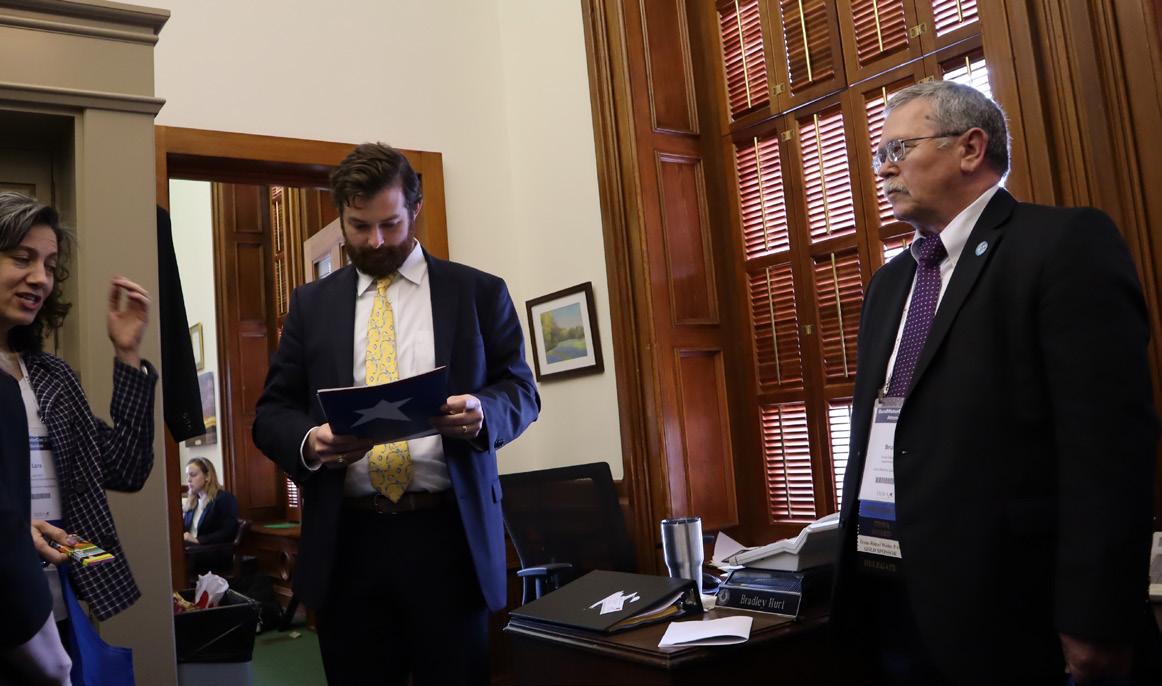
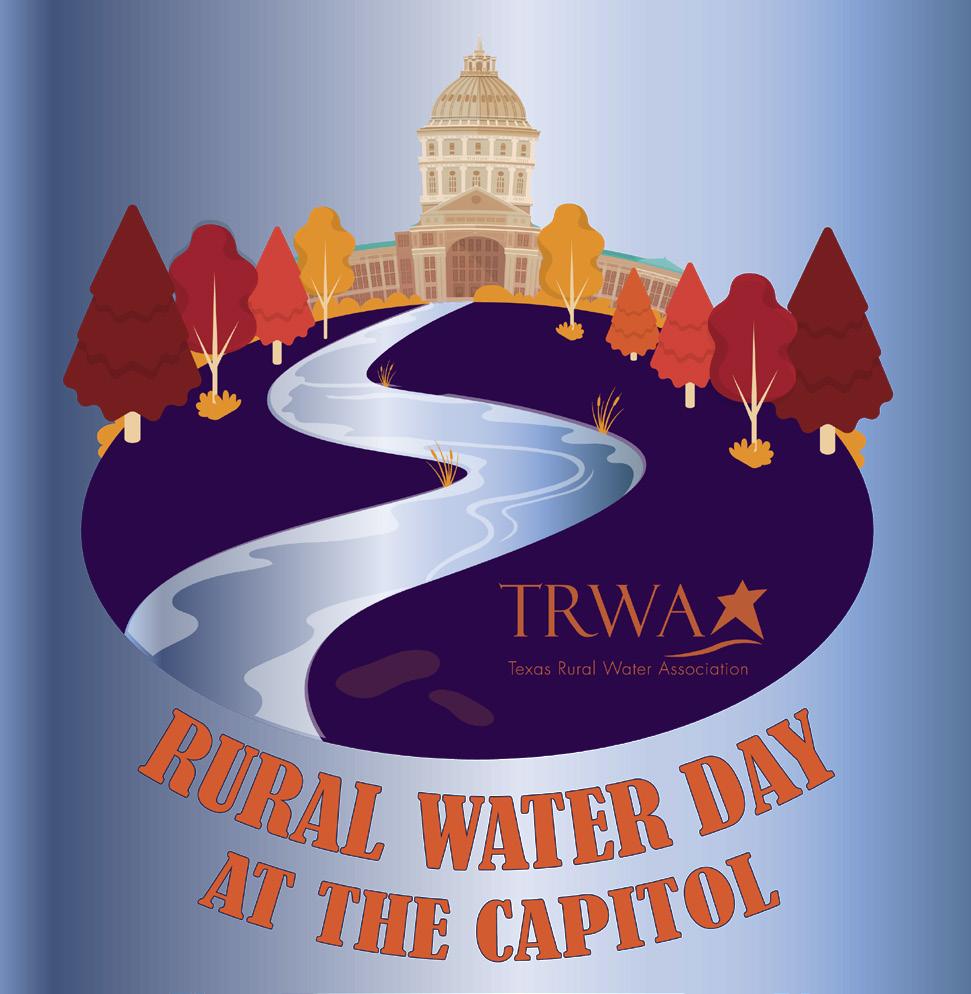
TRWA's Awards of Excellence honor some of the individuals and systems who have distinguished themselves in their efforts to support their systems, their communities and the rural water and wastewater industry as a whole. These awards were presented during the Opening General Session of RuralWaterCon 2023 by Chris Boyd, former TRWA director and chair of the Membership Committee.
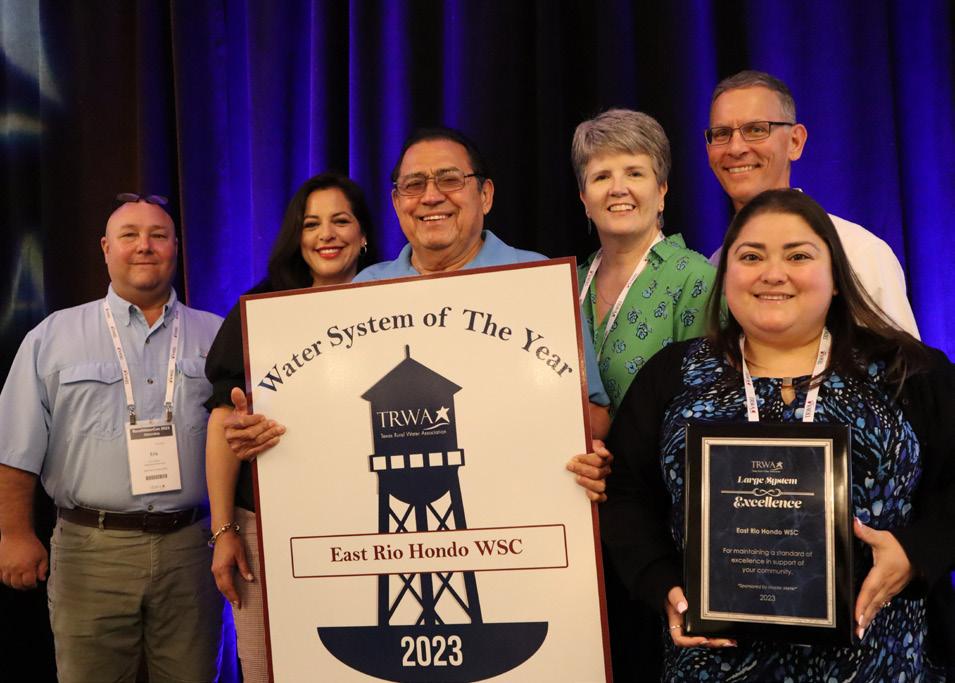

Sponsored By:
For 50 years since its organization in 1972, East Rio Hondo WSC has been planning for growth in South Texas. Expansion has taken it from a single employee to more than 40, from 150 miles of pipe to nearly 500 miles, from fewer than 300 customers to more than 8,700 meters, many of which are wholesale meters serving additional customers further downstream.

That growth has necessitated a lot of construction to keep the system healthy and the water flowing: surface water treatment plants, storage tanks and whole new networks of lines. In 2007, East Rio Hondo worked with a neighboring water system to complete construction on a brackish well-water desalination treatment plant, further boosting capacity.
In 2022, the system completed construction on its latest big infrastructure project: a one-million gallon elevated water tower with a glass-fused-to-steel exterior that doesn't require painting, completed with help from more than $4 million in funding from USDA-Rural Development. This is the first elevated tank of this type and volume in Texas, providing pressure capacity for many new customers in that area of the system, but it also came with an additional benefit for the long-term. Typically, East Rio Hondo has had to repaint its elevated steel tanks every seven years due to corrosion caused by the sea air environment, a lengthy and costly process because of the winds and humidity. The new tank projects to reduce downtime and save the system money over the long term. With this project completed, the board and staff look forward to continuing to serve their area for the next 50 years.


Sponsored By:
As many small systems know, leadership changeover can provide both challenges and opportunities. When long-time managers retired from South Freestone County WSC a few years ago, their replacements saw plenty of both. They had to figure out how to keep the system running and how to upgrade it tobe stronger in the future.
In the past two years these efforts have included numerous plant updates and other projects, including installing drive-by meters, incorporating new billing software, performing a rate study and revamping their rate structure, as well as reorganizing their business management practices under a general manager setup. Plenty more work is on the horizon: Further plant upgrades, rerouting a line due to highway expansion and using GIS help from TRWA to accurately map the system and create an asset management program.
Grant funding has been crucial for a small system looking to tackle so many projects at once. South Freestone County has applied for grant funding from the Texas Department of Emergency Management, Hazard Mitigation Grant Program, Federal Emergency Management Agency and a community development Block Grant within Freestone County. It also received American Rescue Plan Act funding from Freestone County to help purchase generators. With the help of this money and expertise from TRWA and others, South Freestone County plans to continue on its path to improvement.
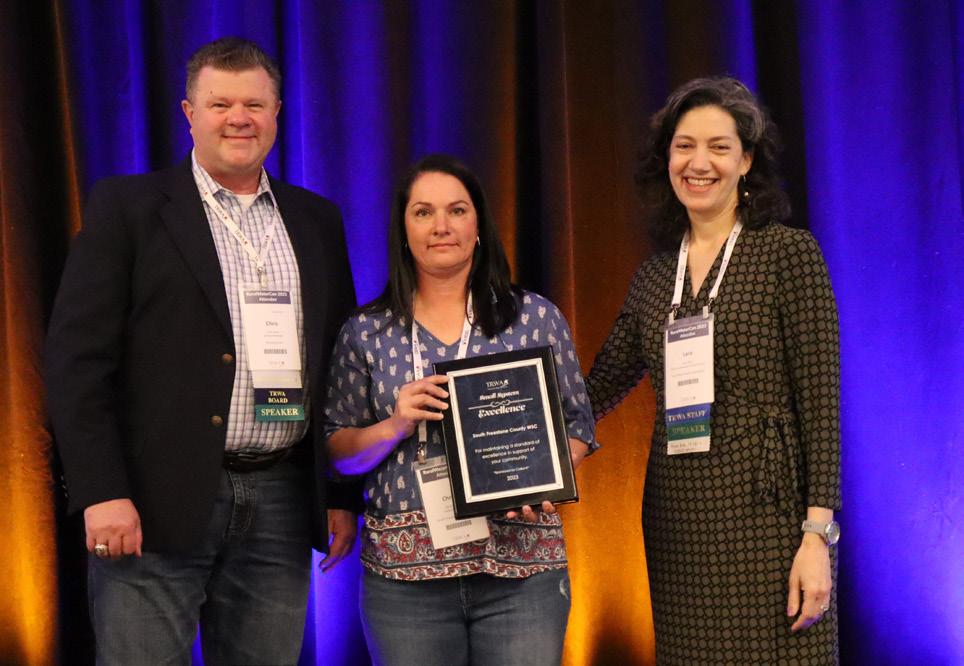
Sponsored By:

In the midst of the terrible drought that gripped Central Texas in 2022, A.J. Gray worked tirelessly through the summer monitoring and managing the system to prevent Dripping Springs WSC customers from slipping further into drought restrictions and ensuring that emergency services had water available for the multiple fires that tore through Central Texas.
Continued on next page:
A.J. began his career at Dripping Springs WSC in 2009 as an unlicensed maintenance tech and worked his way up to a Class 'A' Water license and the position of Operations General Manager, all while overseeing millions of dollars of improvements to the distribution network and technology.

He put those upgrades to use in 2022 to help manage falling aquifer levels and prevent the system from having to enact more stringent drought guidelines. Working long hours, including using his phone to control variable pump speeds, A.J. developed a system that would replenish tank levels during non-peak times and limit the usage of the wells to only when they were needed, reducing drawdown on the aquifer, cushioning the blow of the drought on customers and ensuring that emergency services had plenty of supply to fight wildfires.
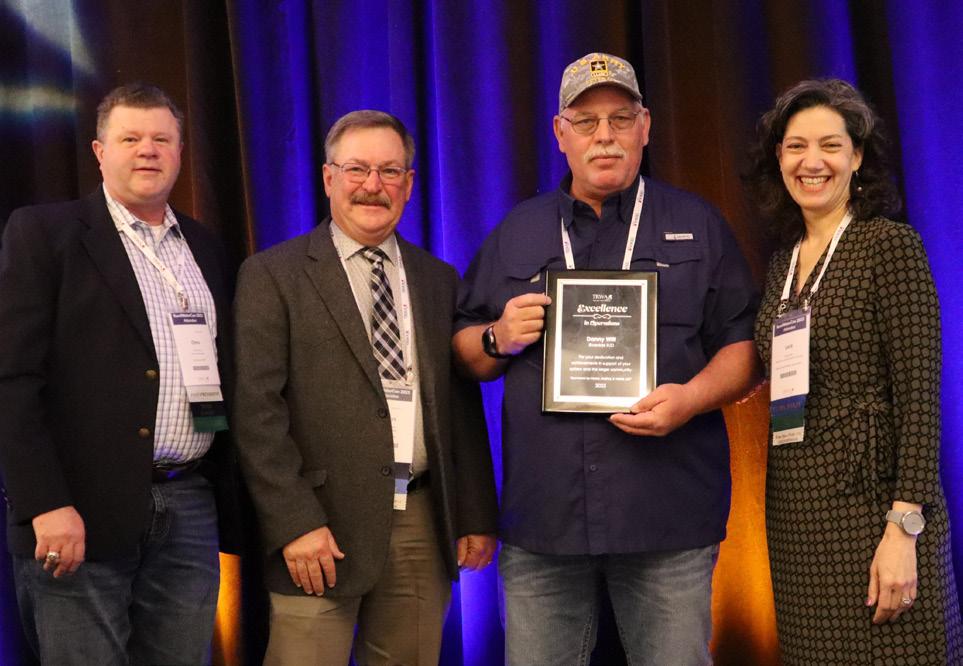
Sponsored By:


A 16-year veteran of Riverside SUD, Field Supervisor Danny Witt never shies away from the hard work the water business requires. For example, he's first on the scene when severe weather strikes the community, leading the charge to ensure the water keeps flowing.
When engineers and technical specialists couldn't find a solution to a local facility's persistent violations for high TTHM levels, Danny learned what he could about the problem and implemented a solution that cut the levels in half, bringing the facility back into compliance.
When a nearby utility lost its contract wastewater operator without notice, Danny and his team at Riverside stepped in to assist, obtaining Class 'D' Wastewater Licenses so they could help out. Their efforts would grow exponentially when they inspected the system's long-neglected treatment plant and lift stations, undertaking extensive repair efforts necessary to bring the plant back up to code.
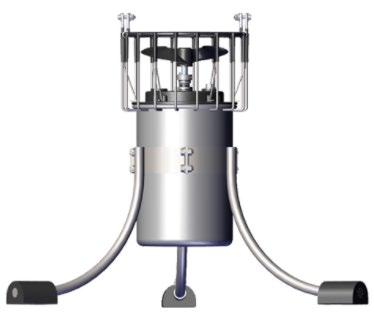

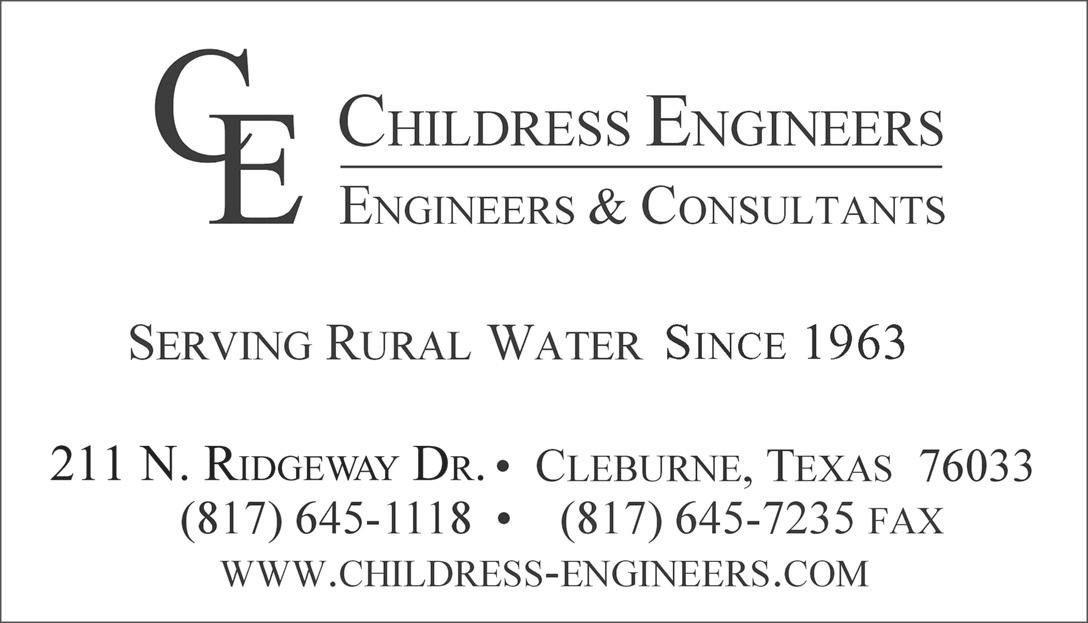
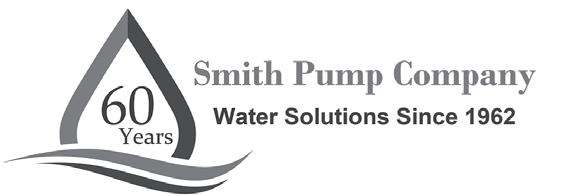

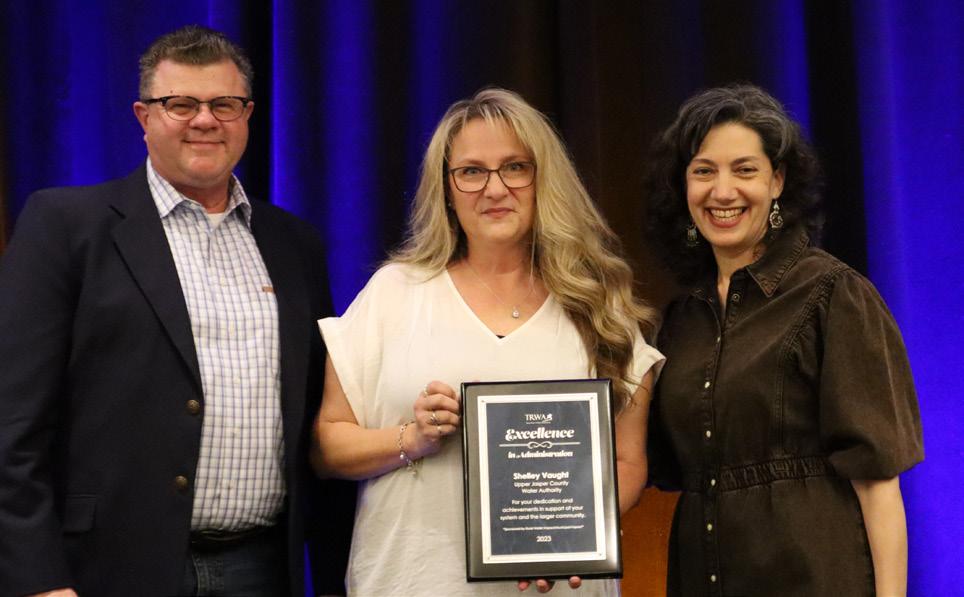
No one knew better than Shelley Vaught what she was taking on when she joined the Upper Jasper County Water Authority in 2004. She had already served on the Board of Directors and knew all too well the struggles the system was facing, both internally and externally.
But Shelly was determined to fix UJCWA, whatever it took. When a power outage struck the area while the field supervisor was away on vacation, Shelley drove throughout the system to check on the generators at each of the wells. When Upper Jasper County learned of a grant funding opportunity, Shelley stayed hours late in the office preparing a 30-page proposal for it.
She's also dedicated to taking care of UJCWA's employees. After an employee lost his mother suddenly, Shelley organized food and flowers for the family. When an employee's adoption went through, she arranged a baby shower at the office to ensure they had supplies.
Though not her official title, Shelley runs UJCWA like a general manager would, always looking for places to help and improve.

Every home and business needs water, something CoBank’s finance team understands. As a TRWA member, we can offer special terms at a lower rate. With little paperwork to complete and minimal delays, CoBank can process your application quickly so you can start your projects right away.

Perhaps no era in our country's history is romanticized more than the Old West. The untamed open plains, high adventure, hidden danger, new discoveries, Herculean challenges, unprecedented opportunities, rugged freedom and true grit still hold lots of appeal for us, even today.
In this state, perhaps our most notable frontiersmen were the Texas Rangers, who prided themselves in "being able to take care of their business with minimal assistance, but…weren’t too proud to ask for help when they needed it.” With their reputations, it's not surprising then how much attention was attracted in the 1870’s when a group
of Texas Rangers began camping along Palo Pinto Creek in modern day Eastland County. The encampment became known as Ranger Camp Valley, and, in 1880 after the donation of 160 acres of land, was incorporated as the city of Ranger, Texas.
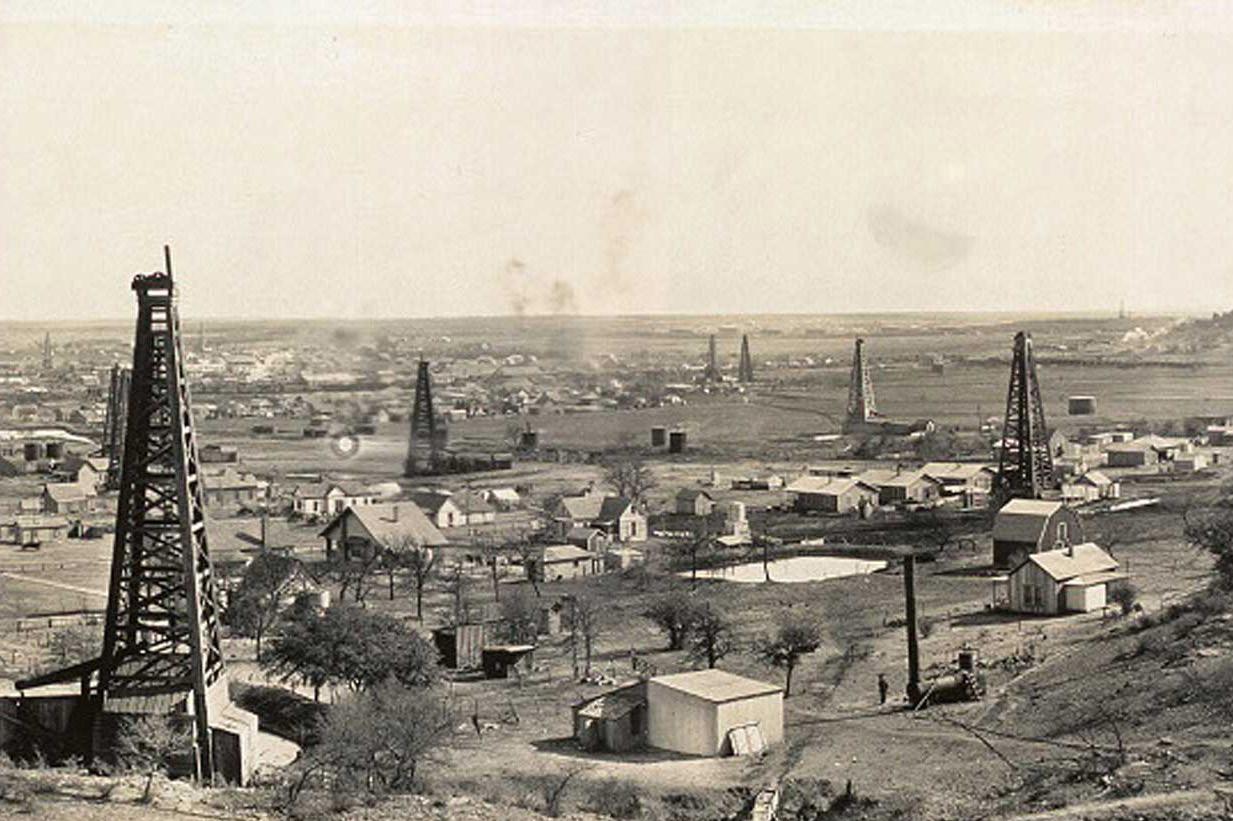
Water has always played a central role in the history of Ranger. A severe drought plagued the Valley in 1917, the same year the first major oil well was drilled by Texas Pacific Coal & Oil Company, setting off one of the largest oil booms in Texas history. By 1920, $5 million in bank deposits (equivalent purchasing power of approximately $58 million in today’s currency) had been made, and the population swelled to 16,201. Some historians estimate a peak of 30,000
residents after a second railroad was constructed. Five trains per day were stopping in the fledgling boom town.
But in 1921, the drought finally broke. Dream town dusty streets became muddy nightmares. Unsanitary conditions caused a typhoid fever outbreak. Then the banks failed and as the euphemism goes, “The rest is history.” The big boom went bust, and by 1930 the population in Ranger dwindled to just a fifth of its peak. Today there are just under 2,500 living there. The Golden Age had turned to lead.
The present day city of Ranger, where the median household income is about half the national average, is still feeling the effects of the
Continued on next page
crash, as one family learned when their two-year-old son's vocabulary lagged behind those of other small children his age. The culprit? Aging Infrastructure. A doctor's tests revealed that he had an unusually high concentration of lead in his blood. Water samples taken at their home revealed a lead concentration 28 times greater than the Environmental Protection Agency (EPA) maximum contaminant level (MCL) of 15 parts per billion.
The EPA goal for Lead in drinking water is 0.00 ppb because no safe blood level has been identified for young children. Lead exposure causes significant adverse health effects such as “irreversible brain damage, lowered IQ, behavioral problems and language delays.” The level detected in the family's home was 418 ppb!
Although it was commonly known the city’s 100-plus year old infrastructure was constructed with substantial amounts of lead lines, chronic lack of resources prohibited water quality sampling, reporting, public notification and corrective actions from being performed.
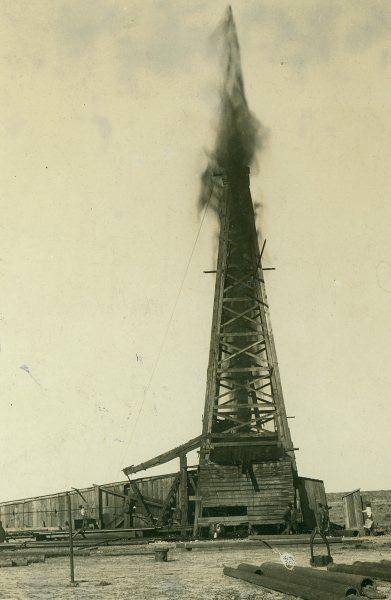
An investigative report by USA Today, originally published December 13, 2016, concluded that “regulators are more lenient with small water systems because they lack resources” and “the nation’s drinking water enforcement system doesn’t make small utilities play by the same safety rules as everyone else.” Meaningful progress was not made in ameliorating the city’s situation, which resulted in state Enforcement Referrals,
Enforcement Actions, and Fines for noncompliance.
High lead concentrations coupled with a lack of corrective actions by city officials has resulted in some describing the situation as a "tiny Flint,” according to USA Today, a reference to the Flint, Michigan debacle.
It's because of Flint, Michigan, and situations like the one this family found in Ranger, that the EPA published changes in 2021 to the Lead & Copper Rules that apply to
all Community Water Systems and Non-Transient Non-Community Water Systems. Their published Rule Review results stated that replacing 100% of Lead Service Lines (LSLs) is urgently needed to protect the public health of all Americans. This includes those who can’t afford replacing the customer-owned portions of their LSLs.
The most immediate, most significant change in the new rules for Public Water Systems is the requirement that systems “develop an inventory to identify the materials of service lines connected to the public water distribution system.”
The initial inventory represents best available data and “…must include all service lines regardless of ownership.” Every single utility and customer-owned service line will be categorized as either Lead, Non-Lead, Galvanized Requiring Replacement or Lead Status Unknown. The inventory will serve as a “living document,” which means water systems should periodically edit, update, expand and refer to it as future needs require. The data the inventory contains could also be utilized to serve different purposes over time.
To assist systems with this timeconsuming endeavor and standarize the data collected, TCEQ has created a Service Line Inventory Form that systems are required to use to complete their inventories by the October 16, 2024, deadline.
TCEQ has postponed publishing its own detailed guidance so as not to create redundant information with the EPA Guidance for Developing and Maintaining a Service Line Inventory. Rather, they plan to draft their advice based on any areas not covered by EPA’s guidance document and any other state-specific matters. In the near term, TCEQ also plans to publish an instructional video to further assist systems to ensure their success with completing the inventory.
System records are the most logical place to start in preparing the LSL inventory. This process can be utilized to eliminate areas where it is known
that no lead lines exist. By narrowing down the areas of potential concern to focus on, systems can minimize labor and other costs.
Non-Lead must be determined not to be lead or galvanized requiring replacement through evidencebased record, method, or technique. “Evidence-based record(s)” can include:
• All construction and plumbing codes, permits and existing records or other documentation which indicates the service line materials used to connect structures to the distribution system.
• All water system records, including distribution system maps and drawings, historical records on each service connection, meter installation records, historical capital improvement or master plans and standard operating procedures.
• All inspections and records of the distribution system that indicate the material composition of the service connections that connect a structure to the distribution system.
• Any resource, information, or identification method provided or required by the state to assess service line materials.
July 1, 1988), that can streamline this process. Specific instructions are provided for recording all Non-Lead designated SLs on your inventory. That work still must be done, however, valuable time, labor, and equipment can be redirected to locations constructed before 1988 or areas for which you are missing records.
Additional documentation sources can also include Ordinances, County Appraisal District (CAD) records (for structure construction dates), Service Connection Work Orders and Maintenance records, Customer Service Inspection reports and Customer Service Agreements.
It is not possible to cover all the critical information and details in such a short article. If you still feel you need help completing your inventory, reach out to TRWA through our Help Request form at trwa.org/page/help. Or you can attend one of TRWA and TCEQ's free Lead Service Line Inventory workshops this summer. (See page 28 for a full schedule.)
Completing an LSL inventory is going to be a long, complex undertaking for many systems, but one vital to the health and success of communities like Ranger.
If a utility can demonstrate through these evidence-based record that areas, communities, subdivisions, individual homes or businesses were constructed after the TCEQ Lead ban (effective
Trey Daywood is an EPA Training & Technical Assistance Specialist with TRWA.
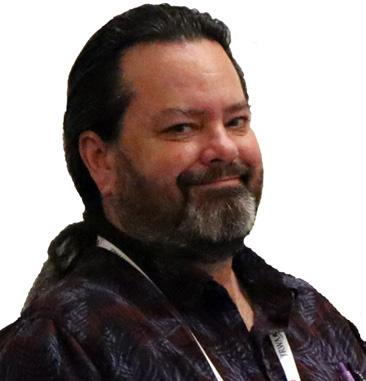
(Editor's Note: This is the second in a two-part series on public notices and how to handle them properly. Part 1, dealing with Tier 1 notices, was published in Issue 1 of Quench for 2023.)
Even if they don't have the same 24-hour emergency notice requirement as Tier 1 violations, it's still crucial that Public Water Systems (PWS) stay on top of and execute their Tier 2 and Tier 3 notices quickly and correctly.
Tier 2 public notices are tied to violations such as Maximum Contaminant Level violations, Surface Water Treatment (SWTR) Technique violations and Lead and Copper Corrosion Control violations. While they are not considered emergencies, the Public Notices are required to be posted as soon as possible and not later than 30 days following the initial violation.
All these Tier 2 violations are indicative of contaminants in the water. Tier 2 violations are all given a weighted value of 5 points per violation in the Enforcement Criteria. And while the Tier 2 public notice violation is still only 1 point, if you get two MCL violations (5+5=10 points) and forget to post the public notices (1 point +1 point=2) , your system could again be looking at enforcement actions and possible fines.
To take one example, Surface Water Treatment Technique violations require a Tier 2 notice in cases such as low disinfectant for free and total chlorine, turbidity, failure to install filtration for a GUI, failure to provide Cryptosporidium treatment, failure to maintain microbial treatment and low disinfection contact time. Each of these will have its own
public notice, and the corrective action is also required in the mandatory language of Public Notice. It is important to use the proper Public Notice template provided by TCEQ in order to make sure the correct mandatory language is included in the Notice. Each type of violation has its own Public Notice Template, so make sure to use the correct one. Creating your own Public Notice and posting it could potentially lead to a violation if the necessary information is not included in the Notice in accordance with TCEQ requirements under TAC Section 290.122.
Repeat public notices shall be issued every 90 days for as long as the violation persists. These violations may take a while to resolve as they may require a change in treatment, filtration unit or possibly a new well, all of which require review and approval from TCEQ, along with the services of a licensed engineer. All notifications require a Certificate of Delivery (COD) due within 10 days of the posting date.
Community Water Systems such as municipalities, districts, and water supply corporations are required to mail or directly deliver notices to each customer receiving a bill and to other service connections to which water is delivered.

They are also required to choose at least one of these other options such as:
• Publication in a local newspaper
• Delivery of multiple copies for distribution to others (i.e. apartment building owners, large private employers)
• Continuous posting in conspicuous public places within the area served
• Posting it on the internet
Noncommunity Water Systems such as schools, businesses, or industries, on the other hand, must continuously post notice in conspicuous places within affected PWS or service area or mail or directly deliver to each customer with a service connection. These “conspicuous” places, observed by consumers on a daily basis, could be on the front door of the building, through email or other electronic delivery, by publishing it in a newspaper or newsletter that is delivered to customers or delivering multiple copies to central locations. These methods of delivery need to be marked on the COD, which is sent to TCEQ within 10 days of the posting date.
The last type of Public Notice is the Tier 3 Notice. Tier 3 Public Notices are tied to violations related to monitoring and reporting of chemical, microbial and surface water treatment. If a sample is not collected by the system or is collected outside of the sample schedule timeframes, or at a sampling location not approved by TCEQ, then a system can receive a monitoring and reporting violation. The system can also get a monitoring and reporting violation for not collecting the correct number of samples.
Alternatively, when the sample is collected but not reported to the TCEQ, this also results in a monitoring and reporting violation. This happens when a TCEQ contractor goes out to the system to sample, but the system does not pay the lab fees. The lab will not release the results to TCEQ unless the lab fees are paid, resulting in a monitoring and reporting violation.
It’s important to know your sample schedules and locations, along with sample numbers, which are located in TCEQ’s drinking water watch database online. This will help you understand what samples you need and when you should be collecting the samples, along with the number of samples.
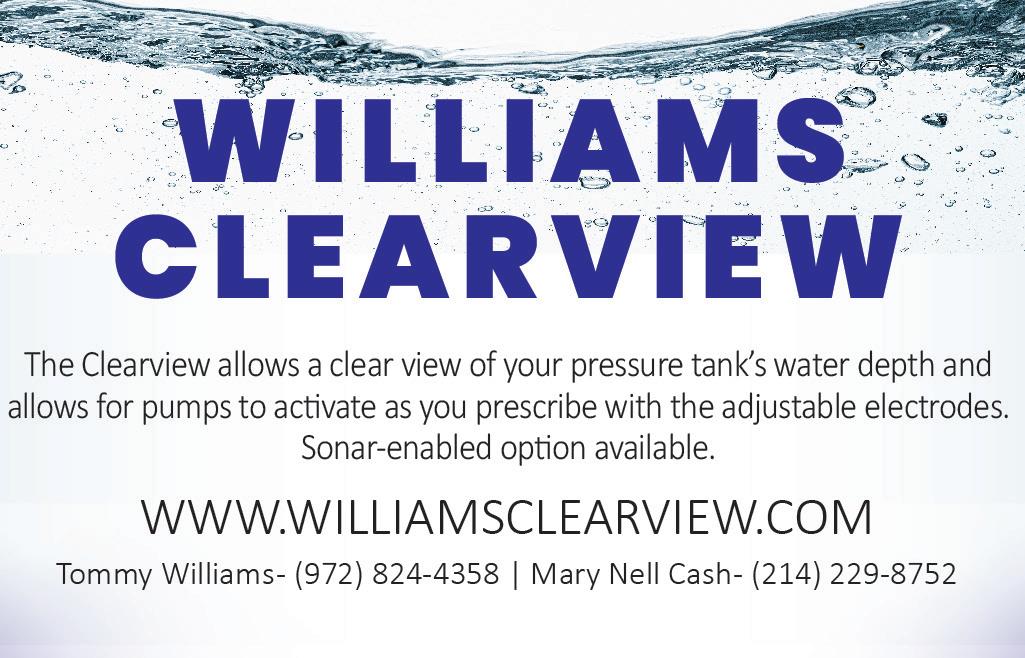
Our Texas communities who rely on their water systems to provide them clean and healthy water deserve to know the quality of their water. Not sampling and not posting the Tier 3 Public Notice can often be worse from an enforcement and public relations standpoint than sampling
and finding contaminates in the water and posting a Public Notice. Not disclosing this information can cause distrust among customers. Tier 3 Public Notices should be posted as soon as possible but not later than 12 months after the violation. The Notice of Violation (NOV) letter issued for the monitoring and reporting violation can be used to enter the information in the Public Notice, such as monitoring periods and chemical, microbial, SWTR constituents in the violation.
Make sure to use the correct Public Notice provided by TCEQ with the NOV letter or download the NOV from the TCEQ website. Corrective Actions, such as how the violation will be remedied, are required in the Tier 3 Public Notices as well. The COD is also required within 10 days of posting the Public Notice and must select the means of how the notice will be posted based on the options as noted in the Tier 2 Public Notice for both Community and Non-community systems.
Community water systems can use the Consumer Confidence Report (CCR) to post notice but this is only an option for Tier 3 Notices, not for Tier 2 or Tier 1 Public Notices, since Tier 1 and Tier 2 Notices have a quicker turnaround time. All Public Notice mandatory language must be included as well in the CCR.

The February 8, 2021, cyber-attack on the water treatment system of the city of Oldsmar, Florida demonstrated the stark reality that our nation’s water and wastewater infrastructure is vulnerable to bad actors who can disrupt vital services Americans count on every day. Safeguarding these critical water and wastewater systems is a challenge that must be immediately addressed. A coordinated effort by federal, state, and local governments, with the support of organizations that have the cybersecurity expertise, is key to the defense of these critical infrastructures.
The National Rural Water Association and the Mission Critical Global Alliance (MCGA) signed a memorandum of understanding on March 9, 2021, to play a vital role in the defense of our nation’s water sector. MCGA and NRWA are developing a plan for
a comprehensive continuous cyber education program that will assist all small and rural water and wastewater systems manage their cybersecurity risk.

In the meantime, MCGA and NRWA recommend the following immediate steps to reduce the risk of informational and operational systems being compromised in this order:
1. Remove insecure remote access
Delete from all SCADA (Supervisory Control and Data Acquisition) servers and HMIs any remote access software such as Team Viewer, LogMeIn, Parallels, Chrome Remote Desktop and Windows Remote Desktop. These types of applications provide full access to computer desktops which gives unauthorized users the same access as your local operators. Authorized users should only be able
to access your SCADA resources through secure channels involving multiple layers of protection, such as virtual private networks, two-factor authentication, geofencing and more. If in doubt, disable all remote access and adjust procedures to work locally until secure solutions can be deployed.
2. Perform risk assessment
Arrange with process specialists to conduct a review of the SCADA system capabilities and the risks that may arise with their abuse. List all the capabilities that the system provides to operators (for example, adjusting the sodium hydroxide level). Then assess what could happen if that capability is abused (if the sodium hydroxide was increased to a toxic level) and how long it would take for this abuse to lead to a serious situation. Finally identify what controls are in place to detect such abuse and the timescales
for this detection (for example, an online sensor detects pH level changes and will generate an alarm within a certain time period).
The objective of this process is to ensure that controls are in place, independent of the SCADA system and individual operators, to detect abuse situations, both local or remote, before they result in serious consequences. All processes involving individual decision-making should follow the foureyes principle where one person checks another’s actions. Any gaps need to be resolved and this may involve a temporary oversight process until a permanent solution can be identified.
3. Raise awareness
Formal comprehensive training in cybersecurity

would be ideal, but as a priority all rural systems should make their employees and contractors aware of the cybersecurity risks that exist, and the actions that they need to take to contribute to the mitigation of these risks. Be aware of the risk and be vigilant; report any unusual activity on SCADA systems or suspicious behavior of individuals; stop any insecure actions by individuals, such as use of unverified removable media, installation of additional software or inappropriate use of equipment.
There are many things that can be done to secure accounts, but as a minimum, rural systems should change all passwords for all user accounts; store new account details in a secure password manager tool such as LastPass or KeePass and issue account details only to those individuals who need these details to perform their roles.
These five steps recommended by MCGA and NRWA are evidence that reducing high consequence risks need not be expensive or time consuming. While it is impossible to completely remove all cybersecurity risk, the recommended approach is to follow the principle of reducing the risk to “As Low As Reasonably Practicable." This point is where one reaches the “law of diminishing returns," where there is little or no additional benefit for the investment.
MCGA and NRWA’s five steps to undertake now have been identified as low cost with a disproportionately large risk reduction. Additional steps can be taken to address more detailed technical risks, but by focusing on these five steps first, and in the recommended order, water systems can reduce the risk they face as quickly as possible.
One of the biggest risks rural systems face is from disgruntled former employees. Systems must ensure that the departure process involves the following steps: collection of all devices and software owned by the organization and update of all user accounts that the person leaving had access to by either deleting, suspending or changing the password. The process needs to ensure these steps are taken immediately upon announcement of
MCGA) is a nonprofit organization committed to working with industry, government, business, and academia to secure critical infrastructure. MCGA accomplishes this through training, educating, and certifying individuals tasked with securing mission critical systems across industry sectors. To learn more about our training and certifications please visit them at www.mcgalliance.org.
TRWA has added four new employees since February, bolstering our office team and field staff to better serve our members across Texas.
Lexi Conaway joined our staff in late February as a part-time administrative assistant, working three days per week in our Austin office.
Lexi is originally from Houston, where she played competitive volleyball for more than seven years. She moved to Austin for college, where she is currently a junior at St. Edwards University double majoring in Business Administration and Marketing.
Before coming to TRWA, Lexi worked for Regents School of Austin, where she served as head coach for their Freshman and Junior Varsity volleyball teams. She is also the head coach of a regional team with Austin Performance Volleyball.

Outside of work and school, Lexi enjoys reading, being active outside
and spending time with friends and family. She often spends her weekends going paddleboarding, playing sand volleyball at Zilker Park in Austin and trying new restaurants in the area with friends.
In March, we added Kenny Butler as a new FMT Specialist. A twenty-year veteran of the water and wastewater industry, Kenny has received Class 'A' licenses in both water and wastewater. He's also in the process of earning his remote pilots license for drone work.
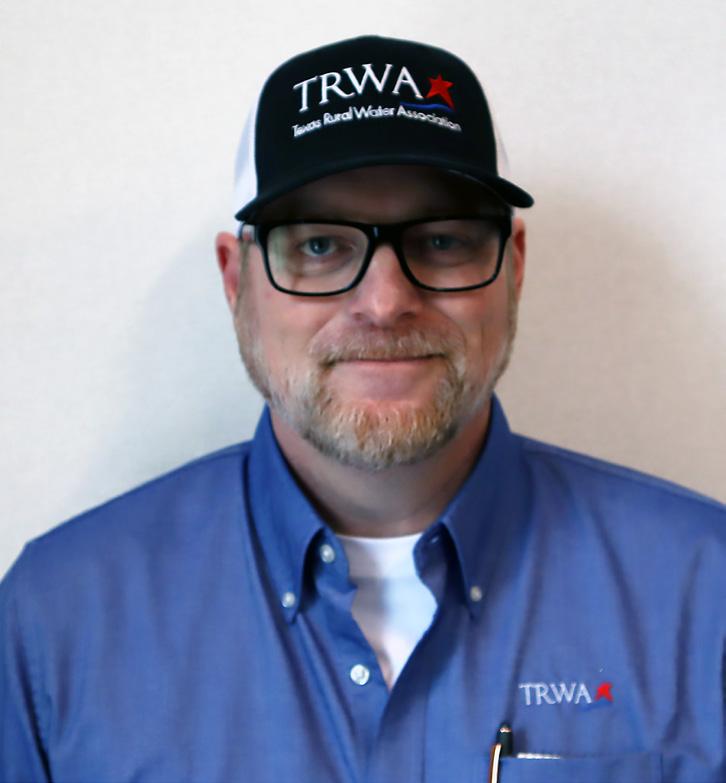
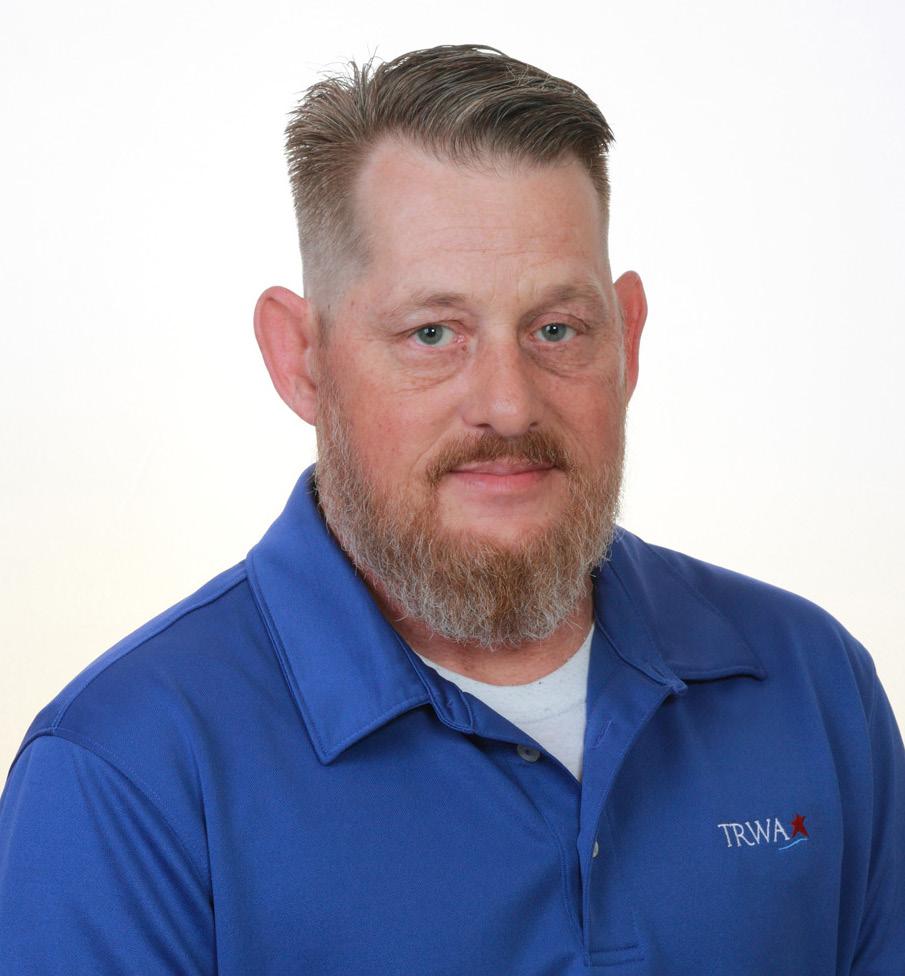
In his free time, Kenny enjoys hunting and fishing, though he admits that most of the hunting is done with a camera these days and that much of the time he prefers his hours spent relaxing on the water not be interrupted by a bite on the other end of the line. Kenny is also the father of three grown children.
Louis Booth , our new Wastewater Technician, also joined in March. A native of Iowa Park, TX, Louis
received a peace officer license from Kilgore College and spent four years as a peace officer and a number of other years following that managing restaurants.
Eventually, the family business called. After growing up the son of a water/ wastewater operator, Louis went to work for the City of Iowa Park in 2015 and eventually served as the Water Distribution and Wastewater Treatment Supervisor, earning Class 'B' Licenses in both Water and Wastewater and his Customer Service Inspection license.
In his free time, Louis enjoys reading and spending time with his family.
Last to join in March was Destany Brown , TRWA's new Paralegal & Executive Assistant. Destany was born and raised in the central Austin area. She attended college at Sam Houston State University in Huntsville, where she received a bachelor’s in criminal justice and a minor in legal studies. While in college she briefly worked
with the Texas Department of Criminal Justice in their Intake and Release department.
After graduating in 2018, Destany returned home and joined the Travis County Attorney’s Office, where she spent the next four years in their Civil Enforcement division. There she assisted attorneys in a variety of legal fields and gained lots of experience in areas such as Eminent Domain,

Environmental Law, Bond Forfeiture and Animal Cruelty. While at TCAO, she was able to dedicate time to earn her Paralegal certification in August of 2020.
In her free time, Destany enjoys Saturday night dinners and drinks with friends, Sunday morning strolls through one of Austin’s local farmers markets and the occasional quiet time dedicated to a good book.
In May we will say goodbye to a longtime TRWA employee, Membership and Outreach Manager Deborah McMullan, who is retiring after more than two decades in the rural water industry.
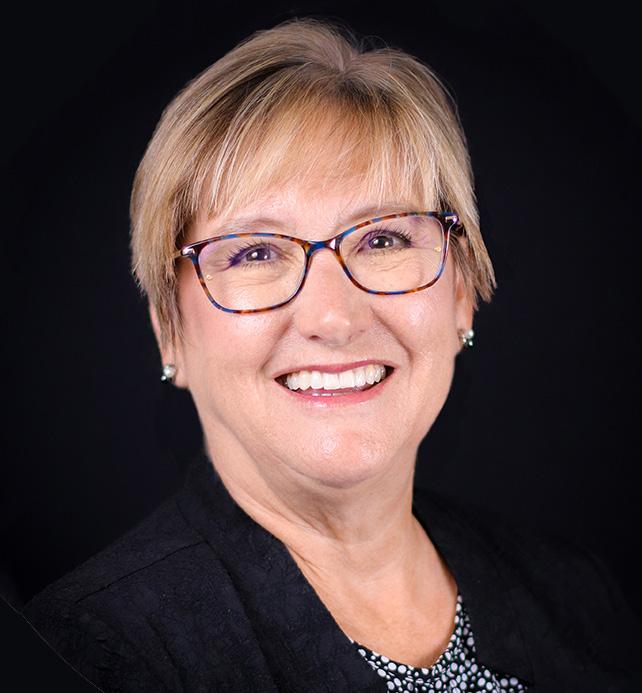
Deborah got her start in the water business at Pattison WSC in Waller County, originally coming on as a part-time employee meant to streamline their office procedures. Six weeks in, the general manager had a medical emergency that necessitated his immediate retirement, and she wound up being in the right place at the right time for a big promotion. So much for finding a little bit of work to do while her daughters were in school.
She had a lot to learn about the water business in that first year, most prominently learning to navigate all the licenses, legal requirements and regulatory rules it took to operate a water system. But the lessons stuck, and she stayed at Pattison for more than a decade.
Deborah joinedTRWA in 2009 as our Source Water Protection Specialist, managing our contract with USDA as she helped public water systems across the state develop their protection plans. "Larry [Bell] had tried to reach out to me
when we had two positions open," she said. "I told him 'I think I'm interested in source water protection.'" She did a phone interview with her future boss and was offered the job immediately. "We did not see each other until the day I walked into that office," she said.
She stayed at TRWA for more than 13 years, working in Source Water, as an Assistant Project Manager for our TCQ and PUCT contracts and, in 2022, in her role in the Membership Department, growing our membership numbers to new highs, managing our Political Action Committee fundraising and putting on area meetings throughout the state to bring members together.
"I’m very grateful for the chance to work with and learn from Deborah," said Jewel Uzquiano, TRWA's current Source Water Protection Specialist, who Deborah managed. "She has inspired me with her excellent work ethic and her dedication to others."
"Deborah was easy to work with because she recognized your strengths and encouraged you through your weak areas to accomplish more," said Office Manager Sonya Stocklin, who worked under Deborah.
Deborah was originally going to retire
at the end of April, but she agreed to stick around for a little while to help train her replacement.
She and her husband are looking forward to having plenty of time to spend with the grandchildren, and to travel. They've got a train tour through Mexico's Copper Canyon on the books and a week in Big Bend later this year, and are would like to take a cruise through the Panama Canal.
"Deborah has put her heart into this association and its people like her who have made TRWA successful," said Deputy Executive Director Jason Knobloch. "Her dedication has been an encouragement to me over the years and I will miss working with my friend."
The Texas Rural Water Association and Texas Commission on Environmental Quality have partnered on a series of free half-day Lead Service Line Inventory workshops across Texas this spring and summer. Come learn tips and best practices for indexing and reporting your system's lead service lines according to state and national standards.

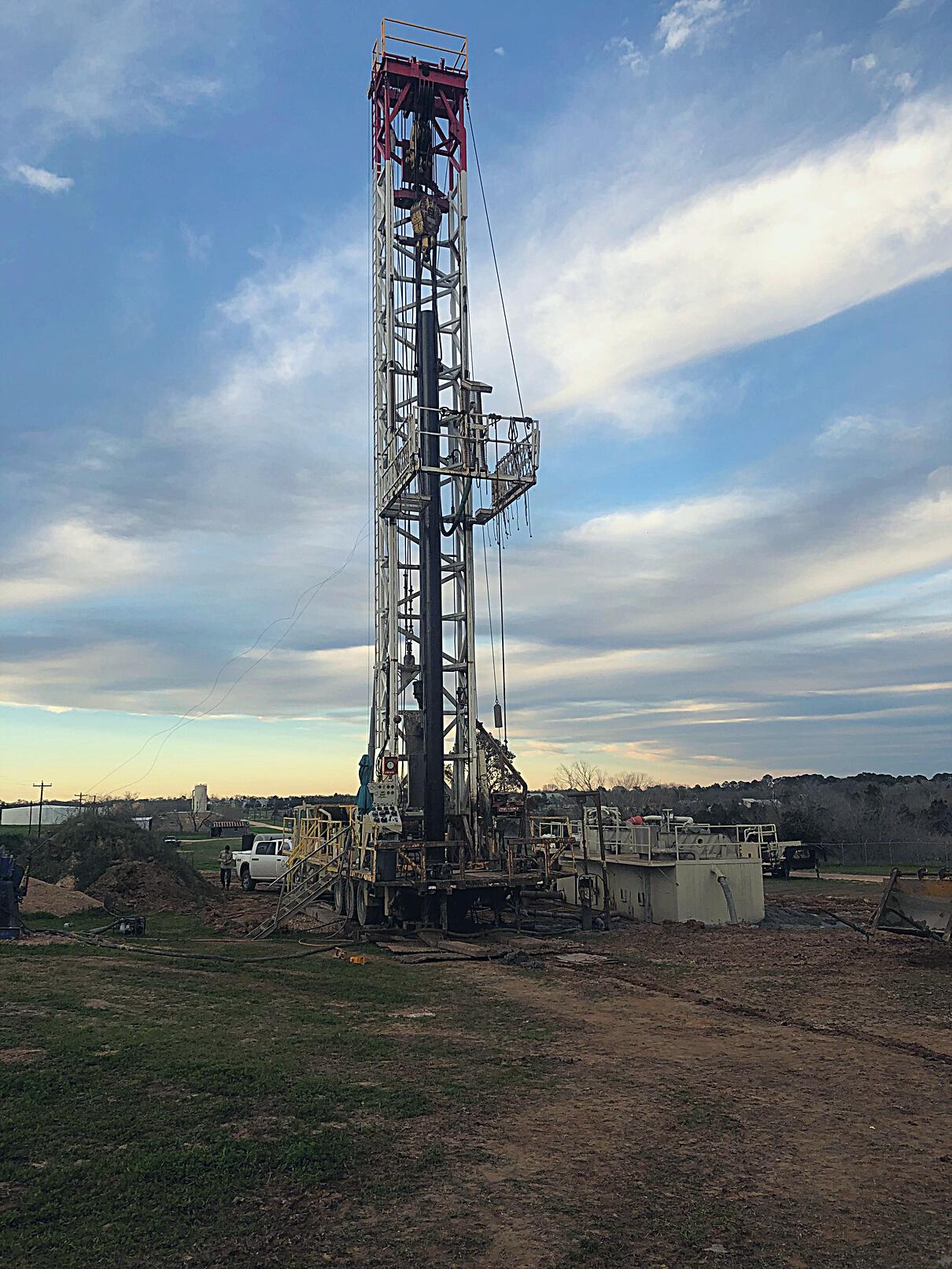
The agenda for these events includes:

• A Lead and Copper Rule Revision and Lead Service Line Inventory Overview, including timelines and due dates
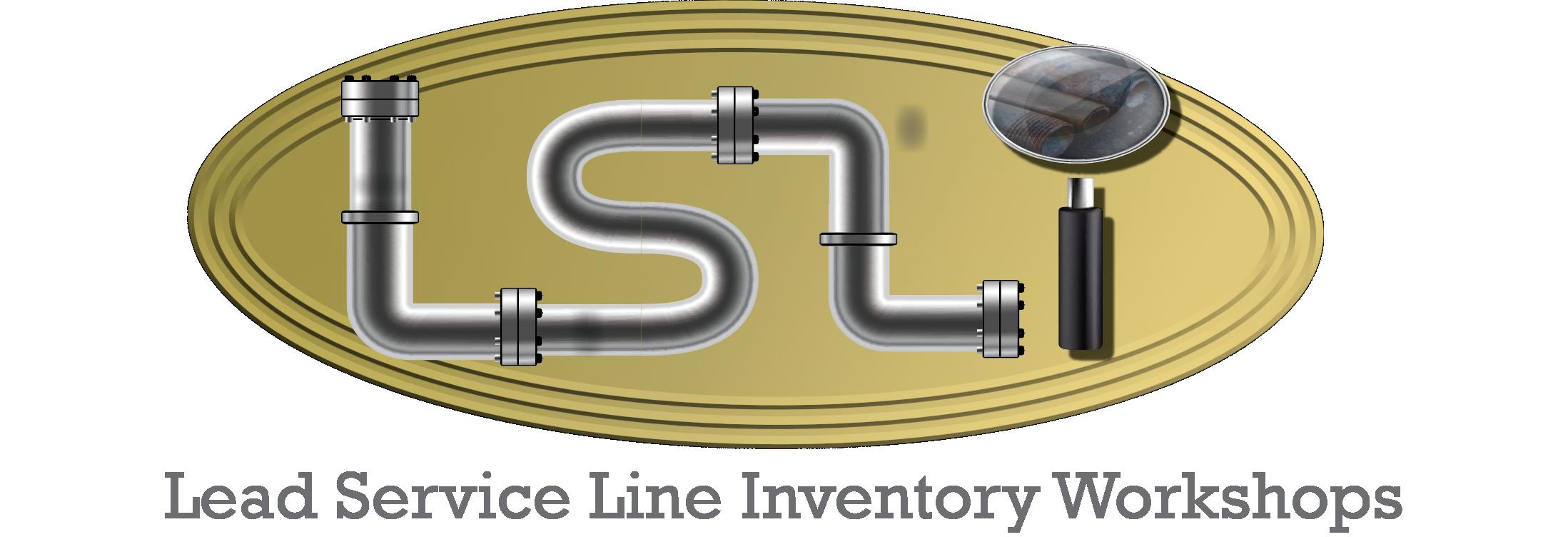
• A walk-through of the TCEQ template, including required fields, areas to note, and conditions that may affect your system
• An overview of the data-gathering methods available to systems: How to search through records, perform visual inspections, and do predictive modeling to help complete your inventory.
• A look at a variety of resources and funding opportunities available to systems completing their inventory.
There will also be an opportunity to receive one-onone assistance if needed following the session.
Workshops will be held from 8 a.m. to 12 p.m., with an hour allotted for one-on-one help following the session. The workshops are free, but we ask that you register in advance at trwa.org/lsli-workshops.
Can't make any of the remaining dates listed below? We'll broadcast the workshop live virtually from Georgetown on May 24. Visit the LSLI Workshop page to register for the virtual event.


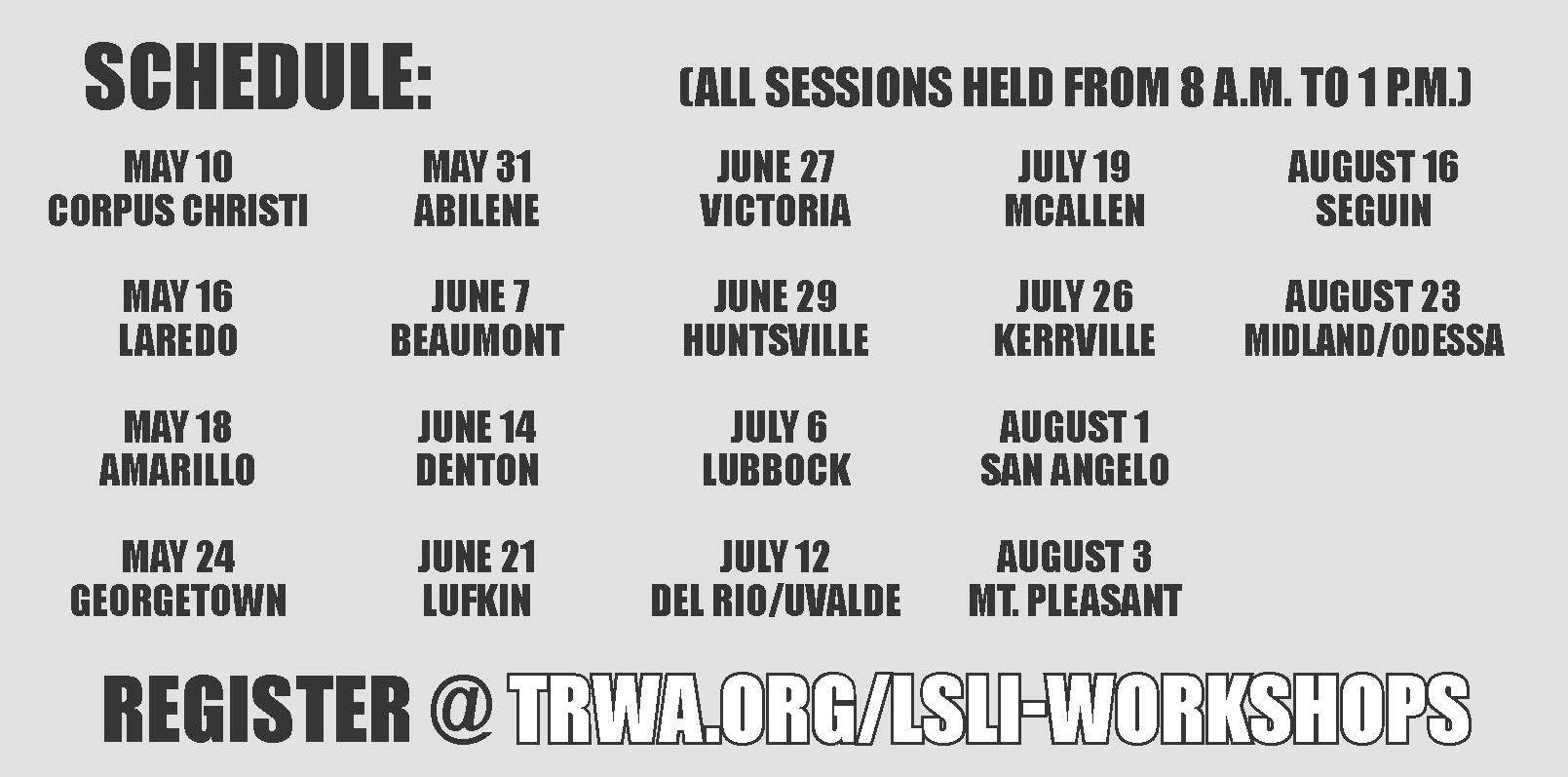



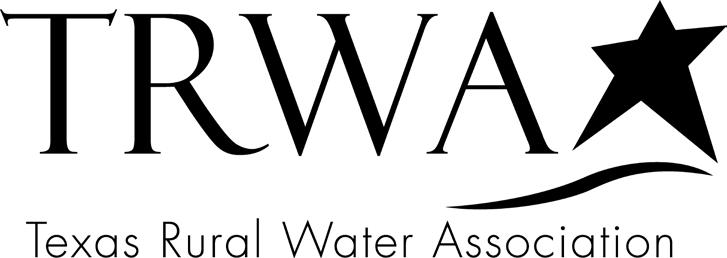
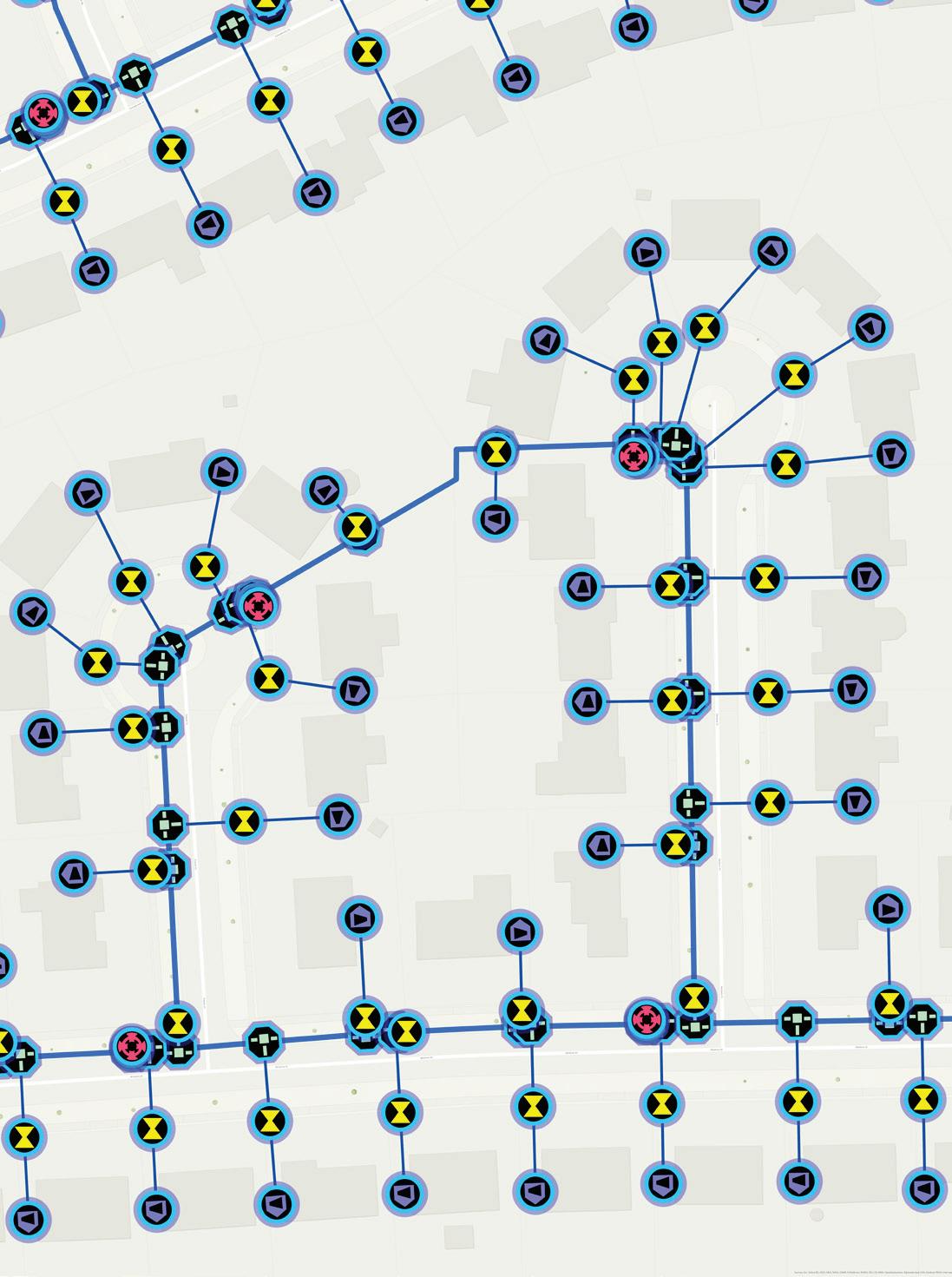
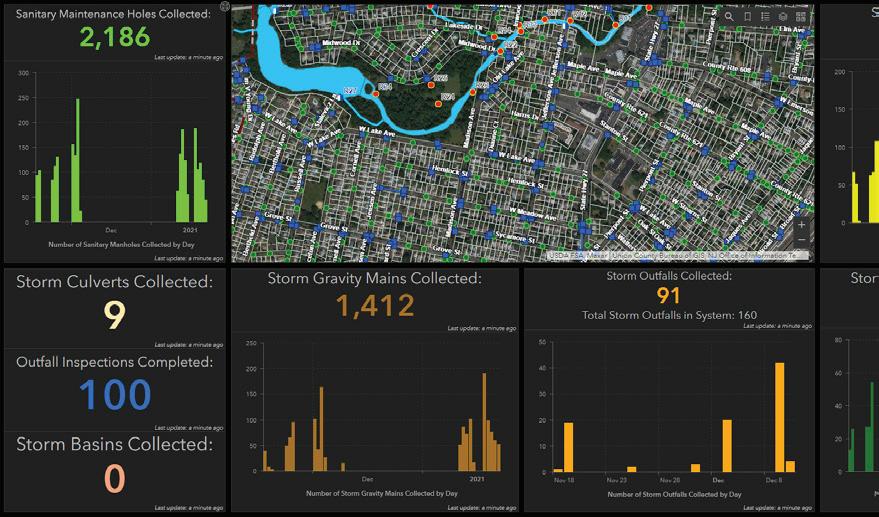
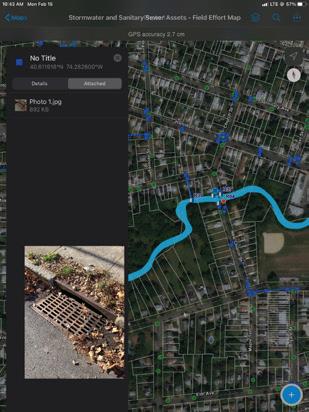
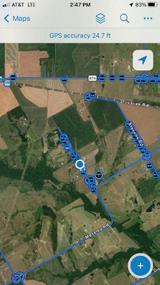
Here's a look at a small sample of the events TRWA has scheduled for the next two months. To see more trainings, regional meetings, conferences and more, visit www.trwa.org/event_calendar
